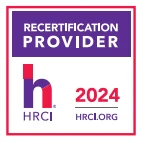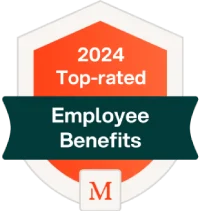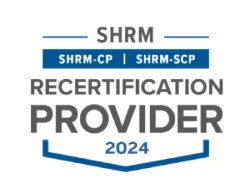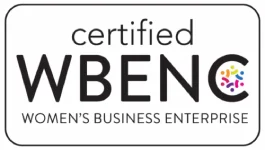Health care reform
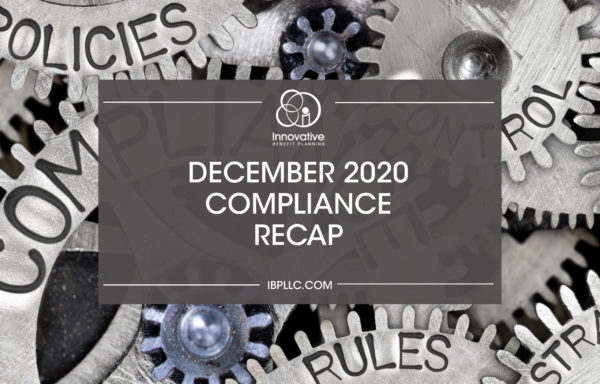
December Compliance Recap
December was a busy month in the employee benefits world. President Trump signed the Consolidated Appropriations Act, 2021, which includes the No Surprises Act and other group health plan provisions. The Centers for Disease Control Advisory Committee on Immunization Practices (ACIP) issued two interim recommendations for COVID-19 vaccines. The Department...
Read More
November Compliance Recap
November Compliance Recap November was a relatively busy month in the employee benefits world. The U.S. Supreme Court (Supreme Court) heard oral arguments in the case of California v. Texas, which is the case challenging the constitutionality of the ACA. The Internal Revenue Service (IRS) released the updated Patient-Centered Outcomes...
Read More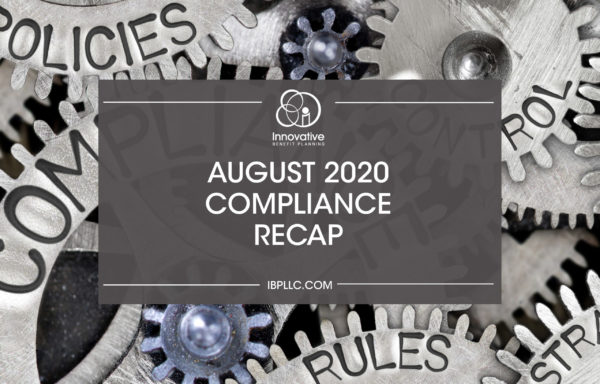
August Compliance Recap
August 2020 Compliance Recap August was a relatively busy month in the employee benefits world. The Congressional Research Service (CRS) released an updated report on health savings accounts (HSAs) that summarizes the principal rules governing HSAs and changes made to HSAs as a result of the COVID-19 pandemic. The Department...
Read More
July Compliance Recap
July was a busy month in the employee benefits world. The U.S. Supreme Court (Supreme Court) upheld the religious exemption and moral exemption final rules to the Patient Protection and Affordable Care Act (ACA) contraceptive mandate. The Internal Revenue Service (IRS) released the indexed 2021 ACA affordability percentage. The President...
Read More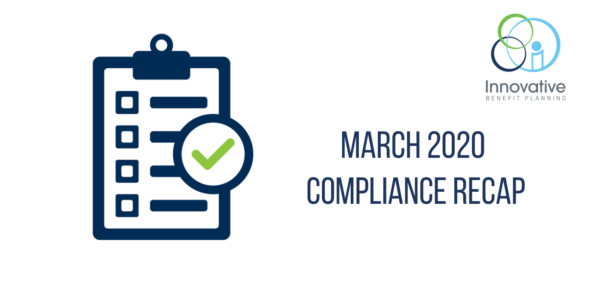
March Compliance Recap
March was a busy month in the employee benefits world. The President signed the Families First Coronavirus Response Act (FFCRA) into law. The Department of Labor (DOL) issued a bulletin regarding enforcement of the FFCRA. The President also signed the Coronavirus Aid, Relief, and Economic Security Act (CARES Act) into...
Read More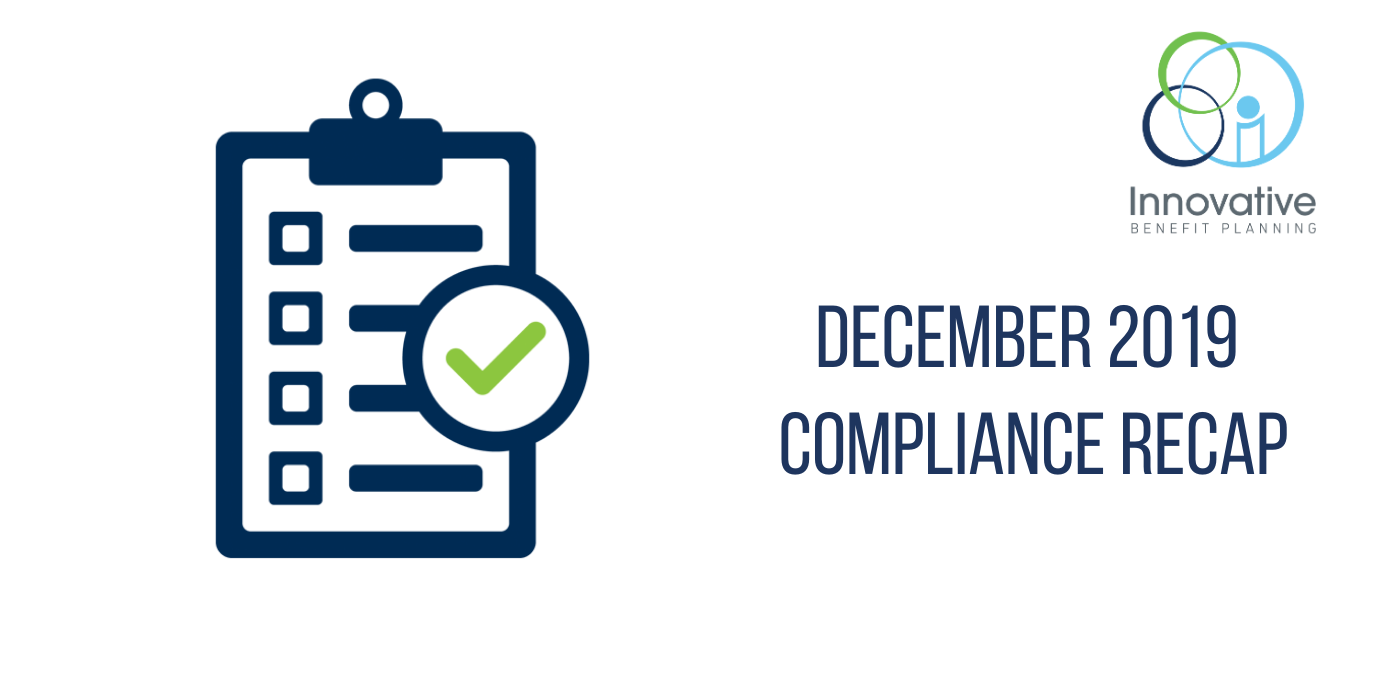
December Compliance Recap
December was a busy month in the employee benefits world. The U.S. Court of Appeals for the Fifth Circuit held that the Patient Protection and Affordable Care Act’s (ACA’s) individual mandate is unconstitutional. The Internal Revenue Service (IRS) released final instructions and final 1094-B, 1095-B, 1094-C, and 1095-C forms for...
Read More
President Trump Signs an Executive Order to Improve Price and Quality Transparency in Healthcare
President Trump signed an executive order directing federal agencies to increase healthcare price and quality transparency. The order specifically directs the Departments of Labor, Treasury and Health and Human Services to issue guidance and propose regulations that would disclose negotiated rates, cost-of-care and de-identified federal healthcare data, and to expand...
Read More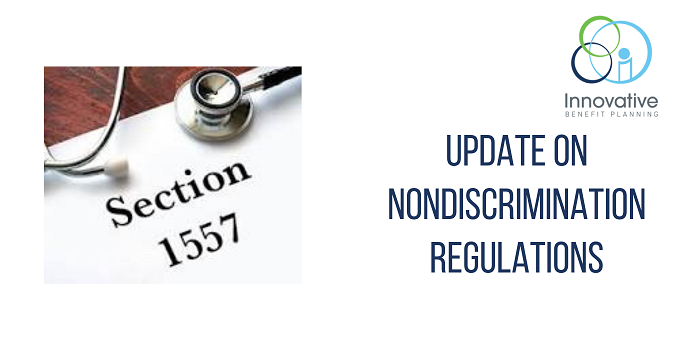
HHS Proposes to Revise ACA Section 1557 Rule
On May 24, 2019, the Department of Health and Human Services’ Office for Civil Rights (OCR) released a proposed rule to revise its regulations under the Patient Protection and Affordable Care Act’s Section 1557. OCR also released a fact sheet and press release. The proposed rule would eliminate: Certain definitions,...
Read More
Innovative Attends NAHU Capitol Conference
February 24-27th, Vice President Consulting Ryan Kastner, Director of Marketing Jamie Bratton and Vice President of HR & General Counsel, Deirdre Groenen, Esq. attended the 2019 NAHU Capitol Conference in Washington, DC. During their time in Washington, the trio attended three days of informative sessions that detailed changing legislation that...
Read More
Tax Credit Check from Horizon
Attention Horizon customers! You may have received or will receive shortly, a check in the mail from Horizon regarding a tax credit refund check. Note, this is a legitimate check and you can use these funds however you see fit. Why are you receiving this check? In late 2017, the...
Read More
Innovative Compliance- The New Jersey Equal Pay Act
As of July 1, 2018, the Diane B. Allen Equal Pay Act (“the Act”), which amends the New Jersey Law Against Discrimination (“LAD”), went into effect in New Jersey. The Act applies to all New Jersey public and private employers regardless of size, except federal employers. https://www.njleg.state.nj.us/2018/Bills/S0500/104_R2.PDF Pursuant to the...
Read More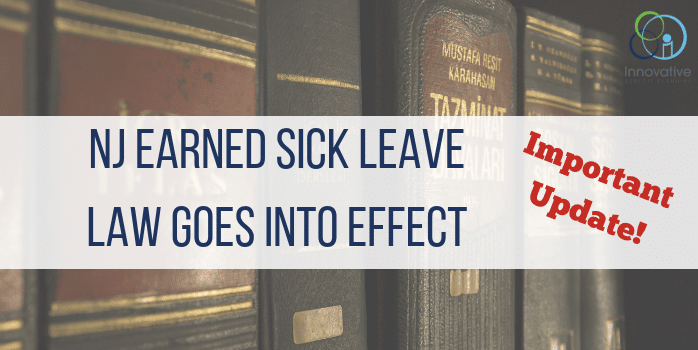
Important NJ Earned Sick Leave Update
In yesterday’s blog post, we discussed the New Jersey Earned Sick Leave Law, which went into effect this Monday, October 29th. For more on the specifics of the law. In addition to the employer obligations outlined in the previous post, all employers with employees working in New Jersey must post...
Read More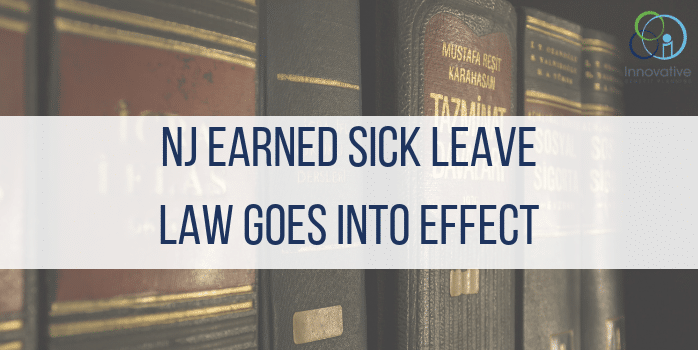
NJ Earned Sick Leave Law Goes into Effect
For New Jersey employers (or PA, NY or other employers who have employees who work in NJ), the NJ Earned Sick Leave Law went into effect Monday, October 29, 2018. Below is a link to a very comprehensive list of FAQs on the law, but here are some highlights: There...
Read More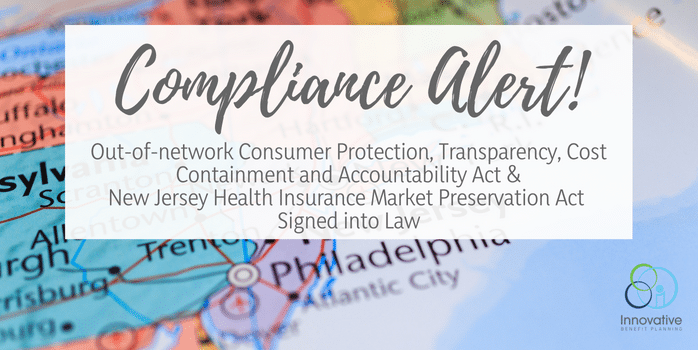
Compliance Alert! – NJ Gov. Phil Murphy Signs Two New Healthcare Acts into Law
This past week, New Jersey Governor, Phil Murphy, signed two bills into law that will impact New Jersey residents. Employers who offer benefits in New Jersey and surrounding states should be mindful of these changes as they will affect employees who reside and/or receive medical treatment in New Jersey. Out-of-network...
Read More
2018 Health Savings Account Contribution Limits Change Once Again
If you recall, after the passing of the tax reform bill, known formally as the Tax Cuts and Jobs Act, the IRS adjusted the amount for HSA family contributions from $6,900 to $6,850 due to a change in inflation calculations. After public outcry and consideration of the administrative and financial...
Read More
New Jersey Newborn Mandate Changes in 2018
In January 2018, the State of New Jersey updated the existing NJ Newborn Mandate that provides health coverage for all newborns from the moment of birth for the first 31 days to provide coverage from the moment of birth for the first 60 days. The newborn child of a subscriber...
Read More
IRS RECALCULATES 2018 HSA & EMPLOYER ADOPTION ASSISTANCE PROGRAMS
Yesterday, the Internal Revenue Service (IRS) released a bulletin that includes a change impacting contributions to Health Savings Accounts (HSAs) and Employer Adoption Assistance Programs. The family HSA contribution for 2018 has been reduced from $6,900 to 6,850. This change is effective January 1, 2018. We advise plan participants to...
Read More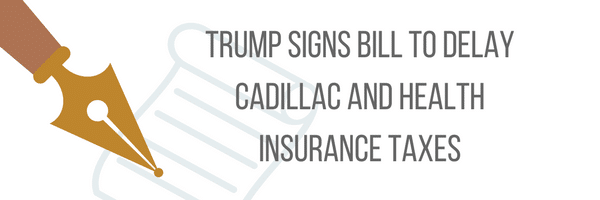
Trump Signs Bill to Delay Cadillac and Health Insurance Taxes
On January 22, 2018, the U.S. Congress voted to pass a bill that would continue to fund the government through February 8, 2018. President Trump signed the bill today, January 23, 2018. In addition to continuing government funding, the bill also includes two legislative victories for employers: delaying the Cadillac...
Read More
IRS Announces Extension for Furnishing 1095-B & 1095-C Forms to Employees
Recently, the Internal Revenue Service announced an extension for employers to provide 1095-B or 1095-C Forms to their employees. The IRS announced a 30-day extension, extending the due date from January 31, 2018 to March 2, 2018. The IRS has not announced an extension for filings to the IRS. Therefore,...
Read More
IRS to Send ACA Penalty Letters
The Internal Revenue Service (IRS) has indicated that it plans to begin notifying employers by year end of their potential liability for failing to provide sufficient health coverage that is compliant with the Patient Protection and Affordable Care Act (ACA). The agency will begin notifying Applicable Large Employers (ALEs) of...
Read More
DOL Overtime Rule Defeated in Court, DOL to Appeal
As you may recall, the Department of Labor put forth overtime regulations that would have taken effect last December, enabling 4.2 million employees to be eligible for time and a half wages for every hour worked over the standard 40 hours per week. However, a number of business groups filed...
Read More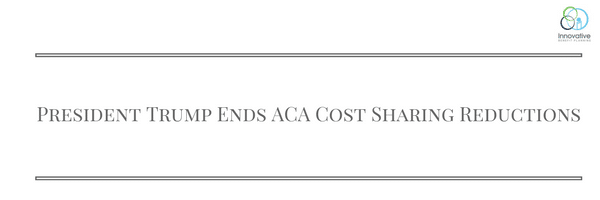
President Trump Ends ACA Cost Sharing Reductions
On the evening of October 12, 2017, President Trump announced that cost sharing reductions for low income Americans in relation to the Patient Protection and Affordable Care Act (ACA) would be stopped. The Department of Health and Human Services (HHS) has confirmed that payments will be stopped immediately. It is...
Read More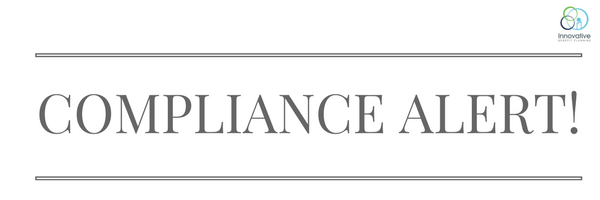
Compliance Alert!
Two tri-agency (Internal Revenue Service, Employee Benefits Security Administration, and Centers for Medicare and Medicaid Services) Interim Final Rules were released and became effective on October 6, 2017, and will be published on October 31, 2017, allowing a greater number of employers to opt out of providing contraception to employees...
Read More
Ryan Kastner Speaks at Pennsylvania State SHRM Conference
Earlier this morning, Innovative’s Employee Benefits Consultant, Ryan Kastner, had the pleasure of presenting at the Pennsylvania State SHRMconference in State College, PA. Ryan’s presentation, “Healthcare Trends in the Trumpcare Era” detailed the most recent national and regional employer health plan trends from the United Benefit Advisor’s Annual Health Plan...
Read MoreRegarding the New York Paid Family Leave Law
NEW YORK PAID FAMILY LEAVE LAW Eligible employees will be able to take NYPFL to take care of a seriously ill family member, to bond with a newborn, adopted or foster child, or for military exigency, as defined by the federal FMLA rules. The New York Disability Benefits Law (NYDBL)...
Read More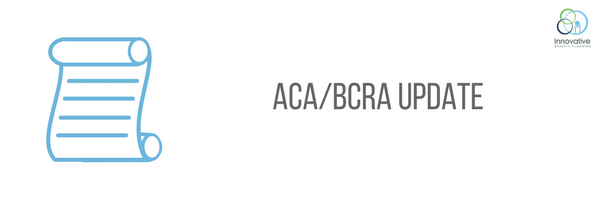
ACA/BCRA Update
As you know, a few weeks ago Senate Republicans drafted a bill, the Better Care Reconciliation Act (“BCRA”), in an effort to repeal and replace the Patient Protection and Affordable Care Act (“ACA”). If you remember, Republicans currently hold a 52-member majority in the Senate, therefore Senate Republicans are left...
Read More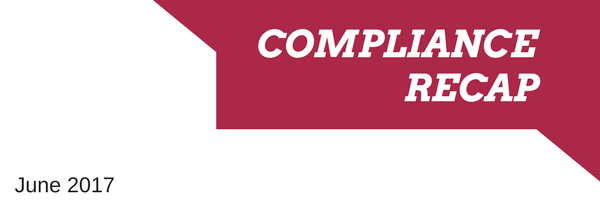
June Compliance Recap
June was an active month in the employee benefits world. The U.S. Senate released a draft of the Better Care Reconciliation Act of 2017 which would substitute the U.S. House Resolution 1628 that aimed to repeal and replace the Patient Protection and Affordable Care Act (ACA). The U.S. Supreme Court...
Read More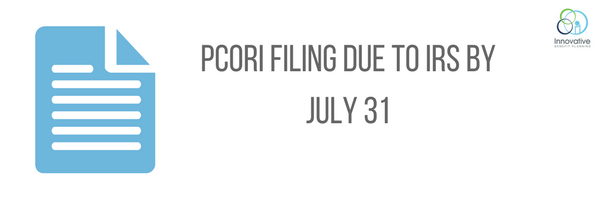
PCORI FILING DUE TO IRS BY JULY 31
It’s that time of year again for PCORI fees to be paid. As you may already know, the Affordable Care Act established the Patient-Centered Outcomes Research Institute (PCORI). The purpose of PCORI is to promote research efforts that will help Americans make better informed health decisions. To fund this effort,...
Read More
Impact of Opt-Out Incentives on ACA Affordability Calculations
Quick Overview of Affordability Employers may find themselves subject to a penalty if an employee goes to the Marketplace/Exchange and obtains a premium credit, because the employer plan was not affordable or does not provide minimum value. An employee is not eligible for a premium tax credit for...
Read MoreNovember 2016- Compliance Recap
November was quite an active month for compliance related updates in the law with regard to employee benefits and human resources. The IRS delayed 6055 and 6056 reporting for 2017, the Overtime Rule was delayed, the government released annual benefit plan amounts for 2017, and the IRS released advanced copies...
Read MoreFLSA Overtime Rule Blocked by Federal Judge
On Tuesday, November 22, 2016, a Texas federal judge blocked the Fair Labor Standards Act Overtime Rule by issuing a nationwide preliminary injunction. The regulation was scheduled to take effect on Dec. 1 and would have raised the salary limit for which workers could be exempt for overtime pay from...
Read MoreIRS Extends 1095 Deadline
The Internal Revenue Service has just announced an extension on the 2016 Form 1095-C , Employer Provided Health Insurance Offer and Coverage. Previously, the 1095-C was due to full time employees on January 31, 2017. Although the IRS had previously indicated not to expect an extension, an extension was granted...
Read More
The Trump Administration & Healthcare Reform
On January 20, 2017, Donald J. Trump will be sworn in as the next President of our nation. Next year, Republicans will have the majority in the House of Representatives (238 Republicans, 191 Democrats) and the majority in the Senate (51 Republicans, 47 Democrats). On November 14, 2016, House Republicans...
Read More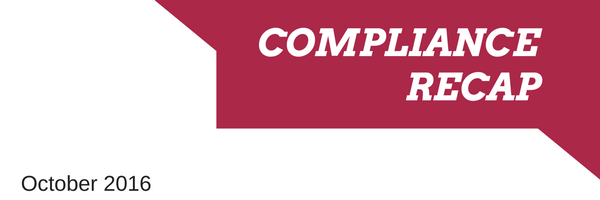
October 2016 Compliance Recap
October was a busy month for administrative rule-making in the employee benefits world. The Internal Revenue Service (IRS) released final instructions for Forms 1094-C and 1095-C, guidance on the taxability of health care sharing ministry employer contributions, and health care information reporting tips. The Department of Health and Human Services...
Read More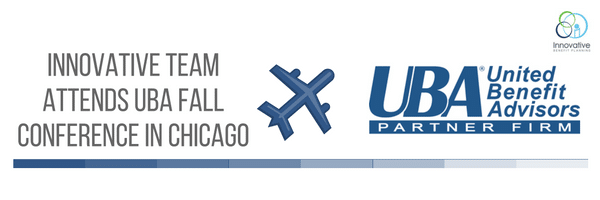
Innovative Attends United Benefit Advisor’s Fall Conference in Chicago
The Innovative team headed to Chicago this past weekend for the United Benefit Advisor’s Fall Conference September 18th-20th. “UBA is the nation’s leading organization of independent benefit advisors who are bound by a code of conduct to actively cultivate, validate and share wisdom with busy benefit decision makers nationwide who want...
Read More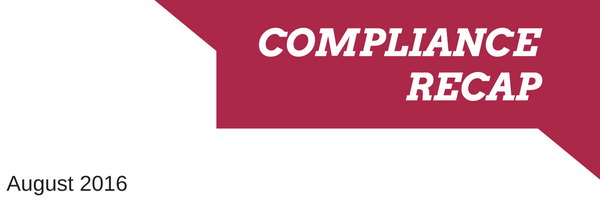
August Compliance Recap
August remained relatively quiet in the employee benefits world, with only new draft versions of the instructions for Forms 1095-C, 1095-C, 1094-B and 1095-B. The new draft versions of the specific forms were released in July. The IRS also released the annual contribution limits for health savings accounts (HSAs) and...
Read More
August Compliance Recap
August was quiet month in the employee benefits world. The Internal Revenue Service (IRS) released its 2018 affordability rate, four information letters regarding the Patient Protection and Affordable Care Act (ACA), and its draft Forms 1094 and 1095. The U.S. Department of Labor (DOL) increased the McNamara-O’Hara Service Contract Act...
Read More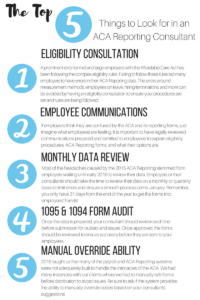
The Top 5 Things to Look for in an ACA Reporting Consultant
Innovative Benefit Planning’s consultants are widely considered the Affordable Care Act experts in the Greater Philadelphia and New Jersey areas. While many employers struggled with the ACA reporting for 2015 with little support, Innovative clients slept easy with employee communications, in-depth consultations, pre-form data audits, and error resolution support. Innovative...
Read More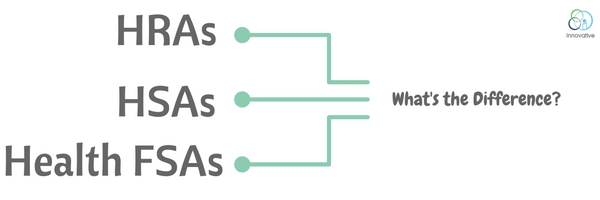
HRAs, HSAs, and Health FSAs – What’s the Difference?
Health reimbursement arrangements (HRAs), health savings accounts (HSAs) and health care flexible spending accounts (HFSAs) are generally referred to as account-based plans. That is because each participant has their own account, at least for bookkeeping purposes. Under the tax rules, amounts may be contributed to these accounts (with certain restrictions)...
Read More
Compliance Recap- July 2016
During the month of July numerous new regulations were issued or proposed by federal agencies, and existing forms and processes were updated. In particular, penalties for various ERISA violations were increased, a major overhaul to Form 5500 filings was proposed, and draft 1095-C and 1094-C forms were released. Proposed regulations...
Read More
Salary Considerations under the New DOL Standards
On December 1, 2016, the Department of Labor (DOL) will implement changes raising the minimum compensation for exempt employees to $47,476 annually. While salary is just half of a two-part equation that includes a duties test of essential job functions, scrutiny is under way to analyze compensation and find solutions...
Read More
June 2016 Compliance Recap
June was another quiet month for federal agencies in relation to employee benefits. A tri-agency proposed rule regarding expatriate health plans, excepted benefits, and essential health benefits was released. UBA Updates UBA’s Human Resources department released a checklist and advisor on new OSHA requirements: OSHA Reporting Changes: Employer Checklist OSHA’s...
Read More
Interim Final Rule Updating the Penalties for Certain ERISA Violations
In the beginning of July, the Department of Labor (DOL) issued an interim final rule, effective August 1, 2016, adjusting the amounts of civil penalties as required by the Federal Civil Penalties Inflation Adjustment Act Improvements Act of 2015. In order to improve the effectiveness of civil monetary penalties, maintain their deterrent...
Read More
Proposed Rule Offers Guidance on Expatriate Health Plans, Excepted Benefits and Essential Health Benefits
In a tri-agency proposed rule, the Department of Labor (DOL), Department of Health and Human Services (HHS), and Department of Treasury (Treasury) have published guidance discussing expatriate health plans (expat plans), excepted benefits, and essential health benefits (EHBs). Expatriate Health Plans The proposed rule would allow expatriate health plans, employers...
Read More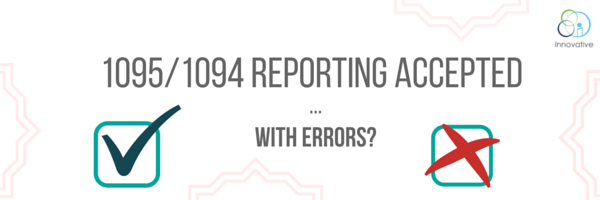
1095/1094 Reporting Accepted…with Errors?
Ryan Kastner – Employee Benefits Consultant Mid and large size employers have begun to breathe a sigh of relief knowing the first year of 1095/1094 Reporting is almost behind us. Unfortunately, 70% of employers are unable to fully relax as many are receiving notices of “filing discrepancies” within their 1095...
Read More
OSHA Issues a Final Rule on Electronic Tracking of Workplace Injuries & Illnesses
Is your organization tracking workplace illnesses and injuries in accordance with new laws? Beginning in 2017, certain employers with as few as 20 employees at a single site will be required to electronically file information about employee injuries and accidents that occurred in the prior year. This means that, for many...
Read More
Nondiscrimination Regulations Relating to Sex, Gender, Age, and More Finalized
On May 13, 2016, the Department of Health and Human Services (HHS) issued a final rule implementing Section 1557 of the Patient Protection and Affordable Care Act (ACA), which will take effect on July 18, 2016. If entities need to make changes to health insurance or group health plan benefit...
Read More
What’s Next in ACA Reporting
Now that the first set of reporting forms have been completed, many employers are wondering what the next steps are. Employers that did not fulfill all of their obligations under the employer shared responsibility provision (play or pay) might owe a penalty to the IRS. A penalty will be owed in...
Read More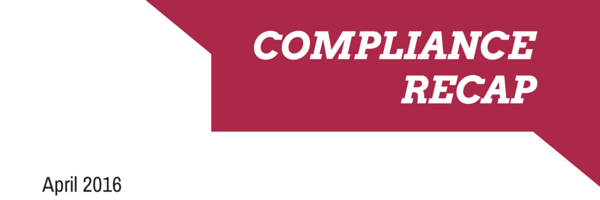
Compliance Recap- April 2016
Catch up on compliance developments you may have missed last month with UBA’s April 2016 Compliance Recap. As much of the country anxiously awaits the Department of Labor’s (DOL) long-promised final rule relating to overtime exemption regulations, the employee benefits space has been relatively quiet. March 31 was the first...
Read More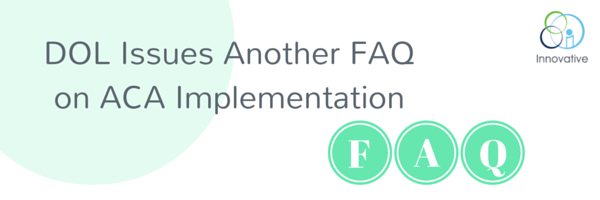
DOL Issues Another FAQ on ACA Implementation
The U.S. Department of Labor (DOL) has issued its 31st FAQ on the implementation of the Patient Protection and Affordable Care Act (ACA), dedicated to coverage of preventive services, rescissions of coverage, out-of-network emergency services, clinical trial coverage, cost-sharing limitations, the Mental Health Parity Act, and the Women’s Health and...
Read More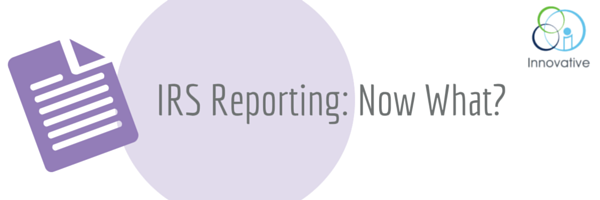
IRS Reporting: Now What?
Applicable large employers and self-funded employers of all sizes have now completed the first round of required IRS reporting under the Patient Protection and Affordable Care Act (ACA). The ACA requires individuals to have health insurance, while applicable large employers (ALEs) are required to offer health benefits to their full-time...
Read More
Compliance Recap – March 2016
The government was busy during the month of March, issuing the massive Benefit Payment and Parameters rule in addition to numerous other updates. The IRS has added filing errors relating to Form 5500 to its project list, and multiple federal agencies confirmed that the just-announced templates relating to the...
Read More
IRS Reporting Tip #2 – Form 1095-C, Line 14, Code 1A versus 1E, and When To Use 1I
Under the Patient Protection and Affordable Care Act (ACA), individuals are required to have health insurance, while applicable large employers (ALEs) are required to offer health benefits to their full-time employees. In order for the Internal Revenue Service (IRS) to verify that (1) individuals have the required minimum essential coverage,...
Read More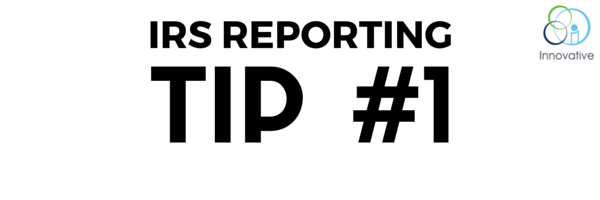
IRS Reporting Tip #1 – Form 1094-C, Line 22
Under the Patient Protection and Affordable Care Act (ACA), individuals are required to have health insurance while applicable large employers (ALEs) are required to offer health benefits to their full-time employees. In order for the Internal Revenue Service (IRS) to verify that (1) individuals have the required minimum essential coverage,...
Read MoreBenefit and Payment Parameters Rule and HIP FAQ
The 2017 Benefit and Payment Parameters (BPP) rule, an annual rule that sets policies relating to the Patient Protection and Affordable Care Act (ACA), has been released by the Centers for Medicare and Medicaid Services (CMS). The 2017 rule contains numerous updates, including the annual open enrollment periods for the...
Read More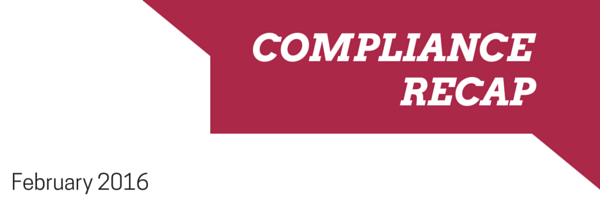
Compliance Recap – February 2016
Despite having an extra day, February 2016 remained relatively quiet in regard to compliance and employee benefit plans. The Department of Labor (DOL) issued the awaited proposed revisions to the Summary of Benefits and Coverage (SBC) template and its instructions. The 2016 poverty guidelines (also referred to as the FPL)...
Read MoreInnovative Attends 2016 NAHU Capitol Conference
This past week, Innovative representatives Dan Foley and Ryan Kastner headed to Washington D.C. for the National Association of Health Underwriters Capitol Conference. Below are live-tweets from the conference. #NAHUCapCon2016 Met w/ NAHU CEO Janet Trautwein 4 an exclusive UpdateFromTheHill 4 UBA partners. These will be a large part of our...
Read More
Compliance Recap- January 2016
January was a very quiet month for compliance, on the heels of the multitude of delays that came at the end of December 2015. The IRS updated its FAQs related to 6055 and 6056 reporting under the Affordable Care Act (ACA). UBA Guides and Compliance Documents UBA updated the popular...
Read More
IRS Updates FAQs Related to 6055/6056 Reporting
The long-standing IRS FAQs related to reporting under sections 6055 and 6056 on requirements provided by the Patient Protection and Affordable Care Act (ACA) have been updated in January 2016 to reflect new information. Final instructions for both the 1094-B and 1095-B and the 1094-C and 1095-C were released in...
Read More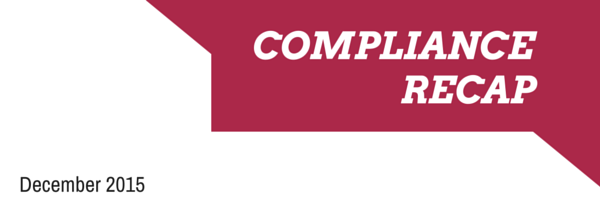
Compliance Recap – December 2015
2015 went out with a bang, as federal agencies and the White House issued a number of major delays relating to employee benefits. Most significantly, IRS reporting for the Patient Protection and Affordable Care Act’s play or pay requirement has been delayed, for both forms being sent to employees and...
Read More
IRS Final Rule on Minimum Value
In December 2015, the Internal Revenue Service (IRS) issued a final rule that clarifies various topics relating to the Patient Protection and Affordable Care Act (ACA) and premium tax credit eligibility provisions. The rule finalizes regulations that were proposed years earlier. Child Income The final rule clarified language relating to...
Read More
IRS Provides Major Delay in 6055 and 6056 Reporting
Under the Patient Protection and Affordable Care Act (ACA), individuals are required to have health insurance, while applicable large employers (ALEs) are required to offer health benefits to their full-time employees. In order for the Internal Revenue Service (IRS) to verify that (1) individuals have the required minimum essential coverage,...
Read More
COBRA and the Affordable Care Act
The Consolidated Omnibus Budget Reconciliation Act COBRA requires employers to offer covered employees who lose their health benefits due to a qualifying event to continue group health benefits for a limited time at the employee’s own cost. COBRA provisions are found in the Employee Retirement Income Security Act (ERISA), the...
Read More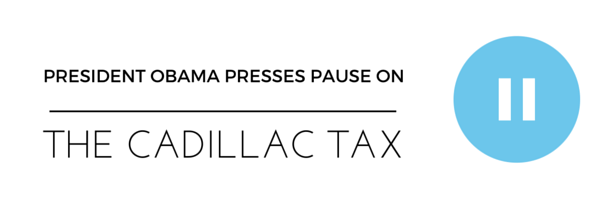
Omnibus Bill Signed Into Law; Delays Cadillac Tax
President Obama has signed the omnibus legislation that includes the Consolidated Appropriations Act for 2016 and a tax extenders package. The agreement will keep the federal government running through September 2016. Within the legislation is language that significantly impacts provisions of the Patient Protection and Affordable Care Act (ACA), largely...
Read More
IRS Notice 2015-87: HRAs, Affordability, and More
On December 16, 2015, the Internal Revenue Service (IRS) and other federal agencies released IRS Notice 2015-87, which is a “potpourri” update that covers many different topics relating to the Patient Protection and Affordable Care Act (ACA), including some relating to market reforms. The Notice generally covers health reimbursement arrangements...
Read More
Proposed Benefit Payment and Parameters Rule Released
Federal agencies have released the proposed rule for the 2017 Benefit Payment and Parameters. Among other items, it provides updates and annual provisions relating to: Risk adjustments, reinsurance, and risk corridors programs Cost-sharing parameters and cost-sharing reductions User fees for Federally-Facilitated Exchanges (FFEs) The standards for open enrollment for the...
Read More
Agencies Issue Final Rule on Grandfathered Health Plans and Other Initiatives
On November 13, 2015, federal agencies issued a final rule that essentially combined a variety of interim final rules and non-regulatory guidance on a variety of Patient Protection and Affordable Care Act (ACA) initiatives such as grandfathered health plans, preexisting condition exclusions, internal and external appeals, rescissions of coverage, lifetime...
Read MoreEEOC Issues Proposed Rule Relating to Genetic Information and Wellness Programs
On October 30, 2015, the Equal Employment Opportunity Commission (EEOC) issued a Proposed rule to amend the regulations implementing Title II of the Genetic Information Nondiscrimination Act (GINA) as they relate to employer wellness programs that are part of group health plans. The Proposed rule would allow employers to offer...
Read MoreACA’s Auto-Enrollment Requirement Repealed
The Patient Protection and Affordable Care Act (ACA) initially required employers with more than 200 full-time employees and that offer employees one or more health benefit plans must automatically enroll (and re-enroll existing) full-time employees into one of the health plans (subject to any waiting period authorized by law), in...
Read MoreDOL Issues FAQ on Mental Health Parity and ACA Market Reform Provisions
In October 2015, the Department of Labor (DOL) provided an informational FAQ relating to the Mental Health Parity and Addiction Equity Act (MHPAEA) and Patient Protection and Affordable Care Act (ACA) market reform provisions. Non-grandfathered group health plans and individual or group market health insurance must cover a variety of...
Read MoreIRS Proposed Regulations Recognize Same Sex Marriage
In June 2015, the Supreme Court ruled in Obergefell v Hodges that the 14th Amendment requires a state to license a marriage between two people of the same sex, and to recognize a marriage between two people of the same sex when their marriage was lawfully licensed and performed out...
Read MoreUPDATE- “Small Employer” Redefined
On Wednesday evening, President Obama signed into law H.R. 1624, more commonly known as The PACE Act. This new legislation amends the Affordable Care Act and allows individual states to determine how they define small-group markets. Now, it will be up to state legislators to govern whether they will...
Read MorePACE Act Passes House, Senate
The U.S. Senate, following the House of Representatives, has passed House Resolution 1624, the “Protecting Affordable Coverage for Employees Act” or “PACE Act” which will be sent to President Obama’s desk for signature. It is anticipated the President will sign the Act into law. The PACE Act would amend the...
Read MoreIRS Notice on Minimum Essential Coverage Reporting
Minimum essential coverage or “MEC” is the type of coverage that an individual must have under the Patient Protection and Affordable Care Act (ACA). Employers that are subject to the ACA’s shared responsibility provisions (often called play or pay) must offer MEC coverage that is affordable and provides minimum value....
Read MorePerfect Attendance! – How to Handle Leaves of Absence under the ACA
The Patient Protection and Affordable Care Act (ACA) requires applicable large employers (ALEs) to offer full-time employees health coverage, or pay one of two employer shared responsibility penalties. An ALE is an employer with 50 or more full-time or full-time equivalent employees (for 2015, this threshold is 100). A full-time...
Read MoreTemporary Safe Harbor for Online Posting of SBCs
A Summary of Benefits and Coverage (SBC) is four-page (double-sided) communication required by the federal government under the Patient Protection and Affordable Care Act (ACA). It must contain specific information, in a specific order and with a minimum size type, about a group health benefit’s coverage and limitations. An SBC...
Read MoreIRS Proposes Minimum Value Rule Change to Mesh IRS and HHS Rules
Beginning in 2015, under the Patient Protection and Affordable Care Act (ACA), large employers must offer affordable, minimum value coverage to their full-time employees or potentially pay a penalty. Some companies have or had been marketing a plan that they state satisfies the minimum value requirement (an actuarial value of...
Read MoreHHS Proposes First of Anticipated Nondiscrimination Regulations
The Department of Health and Human Services (HHS) has issued the first of the anticipated nondiscrimination rules, which sets forth proposed regulations to implement Section 1557 of the Patient Protection and Affordable Care Act (ACA). Section 1557 provides that individuals shall not be excluded from participation, denied the benefits of,...
Read MoreAffordable Care Act Information Returns
Under the Patient Protection and Affordable Care Act (ACA), individuals are required to have health insurance while applicable large employers (ALEs) are required to offer health benefits to their full-time employees. In order for the Internal Revenue Service (IRS) to verify that (1) individuals have the required minimum essential coverage,...
Read More6055 Reporting, HRAs, and “Supplemental Coverage”
The Affordable Care Act (ACA) implemented section 6055 of the Internal Revenue Code, which requires IRS reporting from any entity that provides “minimum essential coverage” (MEC) to individuals. Employers who are applicable large employers (ALEs) have related reporting obligations under section 6056. Beginning in 2013, during the proposed rulemaking stage,...
Read MoreIRS Releases Draft 2015 Instructions for 6055/6056 Reporting
Under the Patient Protection and Affordable Care Act (ACA), individuals are required to have health insurance while applicable large employers (ALEs) are required to offer health benefits to their full-time employees. In order for the Internal Revenue Service (IRS) to verify that (1) individuals have the required minimum essential coverage,...
Read MoreVeterans with TRICARE; VA Coverage Won’t Count Toward Applicable Large Employer Status
The Surface Transportation and Veterans Health Care Choice Improvement Act (STVHCC) of 2015 was signed into law by President Obama on July 31, 2015. The Act, also known as H.R. 3236, is focused on surface transportation programs but affects rules regarding how to count employees under the Patient Protection and...
Read MoreIRS Issues Second Notice to Assist in Developing Cadillac Tax Regulations
The IRS has issued its second notice regarding the upcoming implementation of the Patient Protection and Affordable Care Act’s (ACA) excise tax on high cost employer-sponsored health coverage, also known as the “Cadillac tax.” Beginning in 2018, plans that provide coverage that exceeds a threshold will owe the tax. The...
Read MoreDOL Issues Guidance on Classification of Independent Contractors
The Department of Labor (DOL) has issued an “Administrator’s Interpretation” to assist employers in determining if a worker is an employee or an independent contractor. The DOL has determined that many employers are incorrectly classifying employees as independent contractors, which can harm the worker and open the employer up...
Read MorePreventive Services Final Rules
Federal agencies released final regulations on the preventive services mandate of the Patient Protection and Affordable Care Act (ACA) that requires non-grandfathered group health plans to provide coverage without cost-sharing for specific preventive services, which for women include contraceptive services. After pushback from religious employers, interim final regulations, objections from certain...
Read MoreTrade Bill Increases ACA Reporting Penalties;
Most employers are familiar with the penalties assessed to applicable large employers that fail to offer minimum essential coverage that is minimum value and affordable. In addition to being required to offer coverage, employers (all applicable large employers, and all employers with self-funded plans regardless of size) are required to...
Read More2015 Cost-of-Living Adjustments
Many employee benefit limits are automatically adjusted each year for inflation (this is often referred to as an “indexed” limit). The Internal Revenue Service and the Social Security Administration have released a number of indexed figures for 2015. Limits of particular interest to employers include the following. For health and...
Read MoreTransitional Reinsurance Fee Filing Date Extended to December 5
The Centers for Medicare and Medicaid Services (CMS) has extended the deadline for group health plans to complete their 2014 transitional reinsurance fee (TRF) submission. The announcement, which was released late on November 14, 2014, states that the filing is now due by 11:59 p.m. on Friday December 5, 2014....
Read MoreRequirement to Obtain a Health Plan Identifier (HPID) Delayed
On Friday October 31, 2014 the Department of Health and Human Services (HHS) quietly updated its Health Plan Identifier information page to delay the requirement that insurance carriers and self-funded health plans obtain a health plan identifier (HPID). The delay is in effect until further notice. Plans that have already...
Read MoreFrequently Asked Questions about Grandfathered Plans
As employers determine their plan designs for the coming year, those with grandfathered status need to decide if maintaining grandfathered status is their best option. Innovative, in conjunction with our Partner firm United Benefit Advisors, has created an FAQ to address the questions employers have about grandfathering a group health...
Read MoreEssential Health Benefits, Minimum Essential Coverage, Minimum Value Coverage – What’s The Difference?
The Patient Protection and Affordable Care Act (PPACA) uses terms that sound alike for three very different things. Here’s a closer look at these terms, and when they’re used. Essential Health Benefits Significantly affects individuals and small employers with a fully insured plan. Has a limited impact on self-funded and...
Read MoreUpdate: Same-Sex Marriages and Group Health Benefits
On October 6, 2014, the Supreme Court of the United States declined to review seven cases in which the lower appeals court had ruled that a state law or constitutional provision that prohibited same-sex marriage was unconstitutional. This declination means that the ruling of the appeals court is law, and...
Read MoreCompliance Alert! Deadline Approaching for Larger Self-Funded Health Plans To Obtain a Health Plan Identifier Number
To meet federal requirements, large health plans must obtain a national health plan identifier number (HPID) by November 5, 2014. For this requirement, a large health plan is one with more than $5 million in annual receipts. The Department of Health and Human Services (HHS) has said that since health...
Read MoreIRS Notice Addresses Handling of Changes in Measurement and Stability Periods
Large employers (for 2015, this generally means those with 100 or more full-time or full-time equivalent employees) may use either the monthly or look-back method to determine whether an employee on average works 30 or more hours per week, and for whom a penalty may be owed if adequate health...
Read MoreOur September Educational Events were a Tremendous Success!
Our Innovative team presented an educational seminar at DelFrisco’s Double Eagle Steakhouse in Philadelphia on September 19th, and also at Fleming’s Steakhouse in Marlton on September 25th. The events, which introduced innovative solutions for controlling the costs within your health plan while complying with PPACA, attracted C-level executives as well...
Read MoreIRS Issues Drafts of Instructions for Employer and Individual Responsibility Reporting Forms
The following is a summary of draft instructions. Some of this information may change when the final forms and instructions are released. In order for the Internal Revenue Service (IRS) to verify that individuals have the required minimum essential coverage, individuals who request premium tax credits are entitled to them,...
Read MoreFrequently Asked Questions about the Transitional Reinsurance Fee (TRF)
The transitional reinsurance fee (TRF) applies to fully insured and self-funded major medical plans for 2014, 2015, and 2016. The purpose of the fee is to provide funds to help stabilize premiums in the individual insurance market in view of uncertainty about how the Patient Protection and Affordable Care Act...
Read MoreGroup Health Plan Notices: What Do You Need To Include?
Employers that sponsor group health plans are required to give eligible employees a number of notices each year. Some notices must be given by a particular date, and some must be given as part of the enrollment packet. (This means that non-calendar year plans may need to provide Medicare Part...
Read MoreHighlights of the Summary of Benefits and Coverage Requirement
Plan administrators of group health plans, which includes all employers regardless of size or type of business with the exception of those that have been grandfathered, must provide a Summary of Benefits and Coverage (SBC) to eligible individuals. This requirement applies primarily to medical (PPO, HDHP, HMO, etc…) coverage. There...
Read MoreIRS Issues Drafts of Individual Responsibility Reporting Forms
The following is a summary of draft forms. Some of this information may change when final forms, and the instructions, are released. In order for the IRS to verify that individuals and employers are meeting their shared responsibility obligations, and that individuals who request premium tax credits are entitled to...
Read MoreA September Lunch Event Is On The Calendar!
On February 10, 2014, the IRS issued final regulations on the employer requirements, often known as “Play or Pay.” For some employers Play or Pay is delayed until 2016, for others, compliance is still required in 2015. Make sure you know where you stand. Please join us on Friday September...
Read MoreCost of Living Adjustments for 2015
Many of the thresholds in PPACA have annual cost-of-living adjustments. The IRS has released the 2015 “affordability” thresholds. Affordability is measured differently for purposes of eligibility for the premium tax credit/subsidy (and any employer-shared responsibility penalty triggered by an employee receiving a premium subsidy) and the individual-shared responsibility penalty. For...
Read MoreCourts Issue Opposite Rulings in PPACA Subsidies Cases
On July 22, 2014, two Courts of Appeals issued decisions that address whether only people who live in states that have state-run Marketplaces (which are also called exchanges) are eligible to receive premium tax credits or subsidies under the Patient Protection and Affordable Care Act (PPACA). One court held that...
Read MoreAdditional Rules on Contraceptive Coverage
Following up on the Supreme Court’s decision in the Hobby Lobby case, the Departments of Labor, Health and Human Services, and Treasury have issued an FAQ that reminds employers that ERISA requires that plan participants be advised of a material reduction in benefits within 60 days after the reduction becomes effective....
Read MoreWill Your Private Plan Owe an MLR Rebate This Year?
MLR Rebate Considerations – Private Plans As was the case last year, insurers with medical loss ratios (MLRs) that were below the prescribed levels on their blocks of business must issue rebates to policyholders. Insurers must pay rebates owed on calendar year 2013 experience by August 1, 2014. The rules...
Read MoreWill Your Government or Church Plan Owe an MLR Rebate This Year?
MLR Rebate Considerations – Government and Church Plans As was the case last year, insurers with medical loss ratios (MLRs) that were below the prescribed levels on their blocks of business must issue rebates to policyholders. Insurers must pay rebates owed on calendar year 2013 experience by August 1, 2014....
Read MoreThe Federal Court of Appeals Says Subsidies for Obamacare are Illegal!
After an in-depth, careful reading of the Affordable Care Act, the Federal Appeals Court panel ruled 2-1 that government subsidies used to purchase health insurance on HealthCare.gov are illegal. The ruling stated that only exchanges that are run by an individual state, or the District of Columbia, are permitted to...
Read MoreFourth Circuit Court Says Subsidies in the Federal Exchange Are Legal
We now have a decision from another Court of Appeals (this time it’s the Fourth Circuit) on the exact same subsidy issue as posted earlier today. This court has held that it is legal for individuals enrolled in federally-run exchanges to receive subsidies. If this decision ultimately prevails, employers would...
Read MoreWhy HSAs Linked to HDHPs are Making a Comeback
According to new information from United Benefit Advisors (UBA), health savings accounts (HSAs) are outpacing health reimbursement arrangements (HRAs) in both adoption and participation rates. And now that metal tier health plans [e.g., platinum, gold, silver, etc.] are allowed higher deductibles, employers are increasingly looking at HSA qualified plans for...
Read MoreFollow-Up to the Hobby Lobby Decision
The Supreme Court of the United States recently decided in a case generally referred to as the Hobby Lobby case that closely-held corporations whose owners have religious objections to providing coverage for contraceptives are not required to provide that coverage to satisfy PPACA requirements. We still do not know how...
Read MoreWhat Employers Need to Know about SCOTUS Hobby Lobby Ruling
On June 30, 2014 the U.S. Supreme Court issued a decision in a case generally referred to as the Hobby Lobby case. Hobby Lobby is a family-owned for-profit corporation. The family that owns Hobby Lobby strongly believes that it would violate their deeply held religious values and obligations to provide...
Read MoreInnovative Receives Rave Reviews Once Again!
Last Friday at Sullivan’s Steak House in King of Prussia, our Innovative team revealed the three greatest concerns of our market regarding PPACA at an educational seminar lunch event. In speaking with clients and other employers in the area, it became clear that guidance is needed not only on compliance,...
Read MoreHow Does the New Orientation Period Affect the 90-Day Waiting Period?
The DOL recently (June 25, 2014) issued additional regulations regarding an Orientation Period for Employers. This Orientation Period is meant to provide both employer and employees alike the opportunity to evaluate whether the employment situation is satisfactory for each party. This period can occur prior to the start of the maximum...
Read MoreThe New Jersey Athletic Conference Board Invites Innovative As Their First Guest Speaker!
On Wednesday June 18th, Innovative’s Ryan Kastner, Employee Benefits Consultant, and Scott Agostini, Managing Director, were invited to speak at the NJAC (New Jersey Athletic Conference) semi-annual Board of Athletic Directors meeting in Atlantic City, where they educated the attendees on the possible effects of Health Care Reform to their...
Read MoreWhat Are The Final Regulations For PPACA’s Mandatory Reporting?
On September 5, 2013, the IRS issued proposed rules implementing the information reporting requirements under Code Sections 6056 and 6055. These proposed rules reflected a potential massive and duplicative amount of paperwork required by employers to comply with the reporting requirements of PPACA. On March 10, 2014, the IRS issued...
Read MoreNew Model COBRA Notices Should Be Used By Employers
The Department of Labor has published new model COBRA notices that reflect that coverage is available in the public health insurance exchanges and include information on special enrollment rights. Key points: • Employers should utilize the revised model notices. • Employers should be proactive in communicating with employees about “Marketplace”...
Read MoreHighlights of the Patient Centered Outcomes (PCORI) Comparative Effectiveness Fee
Updated June 2014 The Patient-Centered Outcomes Research Institute (PCORI) fee applies from 2012 to 2019. The fee is due based on plan/policy years ending on or after October 1, 2012, and before October 1, 2019. The fee is due by July 31 of the year following the calendar year in...
Read MoreDon’t Miss Our Next Seminar Lunch Event in King of Prussia!
PPACA Strategies- Innovative Solutions to Control Your Bottom Line With the passing of the Patient Protection and Affordable Care Act, CEO’s and CFO’s have never paid more attention to employee benefits than they are now. Please take advantage of the opportunity to be the most informed person in the room!...
Read MoreDo You Have The Correct Form To File Your PCORI Fees?
The Patient-Centered Outcomes Research Institute (PCORI) fee is imposed on insurers and plan sponsors of self-insured group health plans, with plan years ending after September 30, 2012 and before October 1, 2019. Sponsors of calendar year plans are required to pay the annual fee by July 31 of each year...
Read MoreCOMPLIANCE ALERT! Self-Funded Health Plans Must Obtain a Health Plan Identifier Number
To meet federal requirements large health plans must obtain a national health plan identifier number (HPID) by November 5, 2014. For this requirement, a large health plan is one with more than $5 million in annual receipts. The Department of Health and Human Services (HHS) has said that since health...
Read MoreHow Does COBRA Affect Marketplace Enrollment?
The Obama Administration announced last week that workers who are eligible to continue health insurance coverage through COBRA (Consolidated Omnibus Budget Reconciliation Act), will now have the option of purchasing a plan through the Health Insurance Marketplace without having to wait until open enrollment. In many cases, workers will be...
Read MoreJoin Us For Our Lunch ‘N Learn May 16th: Managing Benefit Costs In The Health Care Reform Era
On February 10, 2014, the IRS issued final regulations on the employer-shared responsibility requirements, often known as “Play or Pay.” For some employers Play or Pay is delayed until 2016, for others, compliance is still required in 2015. Where do you stand? Please join us for a sizzling lunch where...
Read MoreInnovative Consultant, Ryan Kastner, Advises PEBA Attendees on Managing Benefit Costs
The 32nd Annual PEBA Forum took place last Thursday April 24th at the Hilton on City Line Avenue in Philadelphia. Innovative was proud to be an Exhibitor at this event and arrived ready to encourage attendees to take a chance at our mini golf game in order to win a...
Read MoreProposed Regulation: Health Plans Participating in the Exchange Must Provide a 90-Day Grace Period for Subsidized Coverage
For those individuals that purchase a subsidized health insurance plan through the Exchange, and have previously paid at least one full month’s premium during the benefit year, the insurance plan must provide for a 90-day grace period for premium payment before canceling for non-payment. Within this 90-day period, claims for...
Read MoreRegulation Update: House Votes Full-Time As 40 Hours!
In a House vote of 248 to 179 last Thursday, the definition of full-time employee under The Patient Protection and Affordable Care Act (PPACA) was changed from 30 hours per week back to 40 hours per week. The bill was sponsored by Rep Todd C. Young, a Republican from Indiana. ...
Read MoreMarketplace Enrollment Deadline Is Delayed For Some
The March 31, 2014 deadline for enrolling in the Marketplace is less than a week away, but for those who have at least started the enrollment process by that deadline, there will not be a penalty for an incomplete application. According to the U.S. Department of Health and Human Services,...
Read MoreIRS Releases Final Reporting Regulations
In order for the Internal Revenue Service (IRS) to verify that individuals and employers are meeting their shared responsibility obligations and that individuals who request premium tax credits are entitled to them, employers and issuers will be required to provide reporting on the health coverage they offer. The reporting requirements...
Read MoreOption for Some to Renew Policies That Do Not Fully Meet PPACA Standards
On March 5, 2014, the Department of Health and Human Services (HHS) released a Bulletin that allows state insurance departments to permit the renewal through October 1, 2016, of individual and small group policies that do not meet the “market reform” requirements of the Patient Protection and Affordable Care Act...
Read MoreThe Deadline Is Just A Few Weeks Away…
The Individual Mandate went into effect January 1, 2014. Compliance for this mandate requires that non-exempt U.S. citizens and legal residents must purchase and maintain “minimum essential coverage” which includes: • Individual market plans offered within a state, whether through or outside the Exchange • Eligible employer-sponsored plans • ...
Read MoreIt Was A Busy Month At Innovative With Two Outstanding Lunch Events and a Gala!
We did not let the snow get in our way in February! The month started off with _ Mark Sulpizio, Innovative Investment Fiduciaries, LLC Principal _, guiding attendees through the Retirement Fee Disclosure Regulations that went into effect in 2012 at a fantastic Seminar Lunch Event at McCormick & Schmick’s...
Read MoreFinal Regulations Issued on Eligibility Waiting Periods
On February 20, 2014, the Department of Health and Human Services (HHS), the Department of Labor (DOL) and the Internal Revenue Service (IRS) released final regulations on the eligibility waiting period requirements. The Patient Protection and Affordable Care Act (PPACA) provides that plans may not require an employee who is...
Read MoreFinal Regulations on Play or Pay: Non-Calendar Year Plans and Next Steps for Employers
Non-Calendar Year Plans Large employers with non-calendar year plans do not have to provide coverage until the start of the 2015 plan year, but the plan year effective date applies only if they meet a number of requirements. The most significant of these are: The employer had a group health...
Read MoreFinal Regulations on Play or Pay: Large Employer Responsibilities and Potential Penalties
If an employer is large enough for the play or pay requirements to apply (100 or more full-time or full-time equivalent employees for 2015 and 50 or more full-time or full-time equivalent employees for 2016 and beyond), two separate requirements, and potential penalties, apply. Full-time continues to mean 30 or...
Read MoreFinal Regulations on Play or Pay: Delay for Some Employers, and Who Is “Large”?
On February 10, 2014, the IRS issued final regulations on the employer-shared responsibility requirements, often known as “play or pay.” This is the requirement that large employers offer adequate coverage to their full-time employees or pay penalties. The final regulations follow the proposed regulations (which were issued in January 2013)...
Read MoreCompliance Alert! Employer Mandate Delayed For Some Employers
The Obama administration announced Monday February 10, 2014 yet another delay in the Employer Mandate portion of PPACA. The first delay pushed the requirement back to 2015 for all “large” employers, meaning those with over 50 employees. This new delay states that companies with 50-99 employees will not have to...
Read More2014 Federal Poverty Level Numbers Released by the HHS
The 2014 FPL guidelines have been released and are available here: Federal Register, Volume 79 Issue 14 (Wednesday, January 22, 2014). For employer purposes, they matter primary because eligibility for the premium subsidy is based on FPL. The FPL is up 1.5% over last year. The level for a household...
Read MoreWellness Program Clarifications: Tobacco and Outcome-Based Alternatives
Additional PPACA clarifications were released by the HHS and DOL on January 9, 2014 through an FAQ. Here are the updates you need to know concerning your Wellness Program: Wellness Programs The FAQ states that a plan that offers an annual opportunity to receive an incentive for non-use of tobacco...
Read MorePPACA Update: Mental Health And Substance Abuse
A recent FAQ was released by the DOL and HHS to clarify certain regulations within PPACA. Here is the update on mental health and substance abuse disorders: Mental Health and Substance Abuse Disorders Coverage for mental health and substance use disorder services are an EHB, so non-grandfathered individual and small...
Read MorePPACA Update: Expatriate Plans, Fixed Indemnity Policies (Individual Market) and Volunteer Firefighters
Recent clarifications became available from the HHS and DOL regarding several PPACA regulations. Below are the updates for Expatriate Plans, Fixed Indemnity Policies, and Volunteer Firefighters. Expatriate Plans Insured expatriate plans do not need to comply with most PPACA provisions. The FAQ clarifies that a plan is considered an insured...
Read MoreNew Update To Coverage Under “Preventive Care”
On January 9, 2014, the Department of Health and Human Services (HHS), the Department of Labor (DOL) and the Department of the Treasury (IRS) issued clarification on several outstanding issues within PPACA through an FAQ. Here is what is new for preventive care: Preventive Care The requirement that non-grandfathered plans...
Read MoreNew Clarifications On Out-of-Pocket Maximums Under PPACA
On January 9, 2014 the HHS and DOL issued a new FAQ that addressed issues outstanding under PPACA. Here is the update for out-of-pocket maximums: Out-of-Pocket Limits The FAQ clarifies that, for non-grandfathered plans, the out-of-pocket maximum: Must include deductibles, coinsurance and copayments for essential health benefits (EHBs). A plan...
Read MoreDo You Know When To Use A Wrap Around Plan Document Or Wrap Around SPD?
The Employee Retirement Income Security Act of 1974 (ERISA) regulates employee pension plans and welfare benefit plans, with the exception of government and church plans. It is required by ERISA that plan sponsors describe the terms and conditions of its welfare benefit plans on an official written plan document that...
Read MoreDo You Have Questions About Eligibility Waiting Periods? You Are Not Alone!
The 90-day maximum for eligibility waiting periods is effective as of the start of the 2014 plan year. As employers are beginning to implement this new requirement, many have questions. Together with United Benefit Advisors (UBA), we have created a PPACA Advisor that addresses a number of recurring questions about...
Read MoreW-2 Reporting in 2014: Do You Have To Report Your Health Plan Costs, Or Not?
Employers that issued 250 or more W-2s in 2012 will need to include the cost of health coverage provided to an employee during 2013 on the employee’s W-2. Unlike most PPACA requirements, the 250 W-2 threshold is based on each employer’s situation, not the entire controlled group. The rules have...
Read MoreWhat Are Excepted Benefits?
“Excepted benefits” are health benefits that are limited in some way, such as stand-alone dental, long-term care, hospital indemnity, and Medicare supplement policies. Excepted benefits do not need to meet all of the PPACA requirements and they are not considered “minimum essential” benefits. The agencies have proposed three changes to...
Read MoreWho Will Be Paying An Additional Medicare Tax?
The IRS issued final regulations on the additional 0.9 percent Medicare tax owed by high earners beginning in 2013. Employers must withhold this additional 0.9 percent from the employee’s pay only (there is no employer “match”) once the employee’s pay exceeds $200,000. If you would like a White Paper on...
Read MoreWhat are the Projected 2015 Figures ?
HHS and the IRS released anticipated 2015 figures, including: A transitional reinsurance fee (TRF) of $44 (down from $63 for 2014) Maximum out-of-pocket (OOP) expenses of $6,750 for single coverage and $13,500 for family coverage (up from $6,350 and 12,700 respectively for 2014) A deductible maximum in the small group...
Read MoreFrequently Asked Questions About The W-2 Reporting Requirement
Employers that issued 250 or more W-2s in the prior calendar year must include the value of “employer-sponsored group health coverage” on their employees’ W-2s. This means that an employer that issued 250 or more W-2s during 2012 must include the value of employer-sponsored coverage on the employee’s 2013 W-2...
Read MoreWho Is Eligible For The Small Business Tax Credit?
Beginning in 2014, the small business tax credit will only be available to small employers that offer coverage through the SHOP marketplace. Several counties in Washington and Wisconsin will not have SHOPs available in 2014, however. In Notice 2014-6, the IRS states that employers located in those counties will still...
Read MorePre-Existing Condition Insurance Plan Extended
HHS has announced that the Pre-Existing Condition Insurance Plan (PCIP) also has been extended through January 31, 2014. The PCIP will be replaced by marketplace coverage, but to accommodate PCIP enrollees who have not been able to obtain coverage through the marketplace, the PCIP is being extended for one month....
Read MoreHHS Announces Extensions to Enrollment and Premium Deadlines for Marketplace Coverage
The U.S. Department of Health and Human Services (HHS) recently released an Interim Final Rule that formally extends some of the marketplace (also known as the exchange) deadlines and encourages insurers to provide additional extensions if possible. Extensions Affecting the Federally-Facilitated Small Business Health Options Program (FF-SHOP) Marketplace The rule...
Read MoreNew Option for Individuals Who Have Lost Coverage to Purchase a Catastrophic Policy
Currently, catastrophic coverage only is available in the marketplace to people under age 30 and to those who do not need to meet the individual mandate either because the cost of coverage exceeds eight percent of household income or they qualify for a hardship exemption. Catastrophic plans generally will cover...
Read MoreIRS Issues Notice about Same-Sex Spouses under Section 125 Plans, Flexible Spending Accounts, and Health Savings Accounts
On Dec. 16, 2013, the Internal Revenue Service (IRS) issued Notice 2014-1 which provides some answers about covering same-sex spouses under Section 125 plans in light of the Windsor decision. In the Windsor decision, the U.S. Supreme Court ruled that the part of the Defense of Marriage Act (DOMA) that prohibited...
Read MoreDo You Understand the 2014 Requirements for Your Wellness Program?
The wellness program rules provide an exception to the general rule that employers may not take a person’s health status into account with respect to eligibility, benefits, or premiums under a group health plan. Wellness programs, therefore, are allowed if they are designed to help employees improve their health; if...
Read MoreMaximum Deductible for 2015 – Affects Small Employers With Fully Insured Plans
HHS has announced that it expects that in 2015 the maximum deductible for insured small group plans will be $2,150 for employee-only coverage and $4,300 for family coverage (up from $2,000 and $4,000 respectively for 2014).* While there may be modifications when the final notice is released, the figures likely...
Read MoreChanges Affecting Small Insured Plans
Beginning in 2015, if an insurer agrees to use a composite rate, the rate could not be changed during the year, even if the composition of the group changes. Insurers are encouraged to follow this practice during 2014. This applies both inside and outside the SHOP marketplace. The HHS actuarial...
Read MoreTransitional Reinsurance Fee – Affects Large and Small Employers, Whether Fully Insured or Self-Funded
The Internal Revenue Service (IRS) and the Department of Health and Human Services (HHS) recently issued an update on the Transitional Reinsurance Fee (TRF) as follows: A Transitional Reinsurance Fee (TRF) will be assessed on both insured and self-funded plans for the 2014, 2015, and 2016 calendar years to help...
Read MoreOpen Enrollment for the Marketplaces – May Affect Large and Small Employers, Whether Fully Insured or Self-Funded
Open enrollment for the individual marketplaces for 2015 coverage will run from Nov. 15, 2014, through Jan. 15, 2015. Coverage would begin on Jan. 1, 2015, for individuals enrolling from Nov. 15 through Dec. 15, 2014, and on Feb. 1, 2015, for those enrolling from Dec. 16, 2014, through Jan....
Read MoreAdditional Medicare Withholding For High Earners
The Internal Revenue Service (IRS) published Final Regulations on the Additional Medicare Tax (AMT) on Nov. 29, 2013, and an updated and comprehensive FAQ on Dec. 2, 2013. There are few changes from the proposed requirements. In summary: -The requirement for additional withholding was effective Jan. 1, 2013. -The requirement applies to...
Read MoreMaximum Out-of-Pocket for 2015 – Affects Large and Small Employers, Whether Fully Insured or Self-Funded
HHS has announced that it expects that the maximum out-of-pocket limit for non-grandfathered plans in 2015 to be $6,750 for employee-only coverage and $13,500 for family coverage (up from $6,350 and $12,700 respectively for 2014). While it is possible that there will be modifications when the final notice is released,...
Read MoreMental Health Parity and Addiction Equity Act of 2008 – Key Clarifications Made By Final Regulations
The Mental Health Parity and Addiction Equity Act of 2008 (MHPAEA) seeks to ensure that medical plans, including group health plans, that provide mental health and substance use disorder benefits do so in a manner that generally is on par with the medical benefits offered under the plans. The MHPAEA...
Read MoreOur November Lunch Events Were A Huge Success!
Guests at our Fiduciary Best Practices lunch event that was held at DelFrisco’s Double Eagle Steakhouse in Philadelphia on November 14th learned more about the fee disclosure regulations that went into effect in 2011. Innovative’s own Mark Sulpizio discussed how to better understand the fee disclosures provided and address what...
Read MoreInsurers Given Permission to Renew Policies That Don’t Meet PPACA Requirements
Yesterday (Nov. 14, 2013) the White House announced that insurers will not be required to meet most of the provisions of the Patient Protection and Affordable Care Act (PPACA) if they renew individual or small group policies that were in effect on Oct. 1, 2013. The Department of Health and...
Read MoreRyan Kastner, Employee Benefits Consultant, Educates CTP Guests About PPACA
On October 24, 2013, Ryan Kastner was honored to speak to an audience of 45 about the Patient Protection and Affordable Care Act (PPACA) at a workshop conducted by Career Transition Partnership (CTP) at Temple Emanuel in Cherry Hill. Ryan walked attendees through a timeline of provisions within PPACA, focusing...
Read MoreHealth FSA “Use-It-Or-Lose-It” Rule Modified
What some would consider a long overdue change to FSA plans came down from the US Department of Treasury yesterday. The FSA “use-it-or-lose-it” provision, which has required employees to spend pre-tax dollars set aside for certain medical expenses by the end of the year or forfeit those funds, was put...
Read MoreSelf-Funded Employers Get Some Relief: Pay Only 2014 Transitional Reinsurance Fee!
Some employers with self-funded health plans can breathe a sigh of relief this week. The Department of Health and Human Services has announced that certain self-funding employers will be exempt from paying the second and third year Transitional Reinsurance Program Fees imposed by the Affordable Care Act. The first year...
Read MoreHealth Plan Benchmarking Regional Findings: How Does Your Plan Compare?
The benefits landscape remains in a state of flux as the cost of health care continues to increase and recruitment and retention of quality employees becomes more competitive. Combined with the potential impact from Health Care Reform legislation, employers are increasingly challenged to find accurate information that will help them...
Read MoreIs Eligibility For The Marketplace A Section 125 Change In Status Event For Non-Calendar Year Plans?
With the October 1st opening of the Health Insurance Marketplace, some employers have inquired about where they stand if an employee would like to leave their plan. In particular, those employers with a non-calendar year Section 125 plan have asked for guidance on whether entering the Exchange is considered a...
Read MoreBoiling Down PPACA
We’ve had a lot of employers request a simple, at-a-glance way to see all the PPACA requirements that apply to their business. This is no easy task given group size, SHOP exchanges and self-funding variables! Let’s just look at a few provisions that are effective for the plan year beginning...
Read MoreNew Guidance on HRAs and Premium Reimbursement Arrangements
On Sept. 13, 2013, the IRS issued Notice 2013-54, which includes details on permissible health reimbursement arrangements (HRAs), provides some clarification on minimum essential, minimum value and affordable coverage, and addresses payment of individual premiums through an employer-provided plan. HRAs Most people had expected that standalone HRAs would have difficulty...
Read MoreWhat Is A “Common Law Employee?”
As part of PPACA, every employer needs to determine whether or not they are “large” which, according to Health Care Reform, means employing 50 or more full time or full-time equivalent employees. Who exactly does this include? Contractors? While there is no set definition of a “Common Law” employee, there...
Read MoreGOVERNMENT SHUTDOWN – NOW WHAT?
The failure of the U. S. Senate and House of Representatives to agree on a new budget for the Fiscal Year (beginning October 1) is resulting in a furlough of more than 800,000 federal workers and government agencies temporarily closing or cutting back the operations of numerous federal facilities and...
Read MoreHighlights of the SHOP Exchange
PPACA requires that a Small Business Health Options Program (SHOP) exchange/marketplace be established in each state for small employers. For 2014, all states will use 50 employees as the cut-off for small employer status.* Beginning in 2016, all states must use 100 employees as the cut-off. The SHOP exchanges/marketplaces will...
Read MoreDOL Announces Non-Enforcement of Marketplace/Exchange Notice
PPACA requires employers covered by the Fair Labor Standards Act to provide a notice about the upcoming health marketplaces (also called exchanges) to their employees. The notice is due Oct. 1, 2013. On Sept. 11, 2013 the Department of Labor (DOL) announced that it will not penalize employers that do...
Read MoreA Delay for Out-Of-Pocket Maximums
A few weeks ago several media outlets picked up a FAQ that the Department of Labor issued in February of this year. The FAQ may be accessed here: FAQs About Affordable Care Act Implementation Part XII Some of the reports have created confusion about the requirement, and the scope of...
Read MoreIRS Releases Proposed PPACA Reporting Rules
On Sept. 5, 2013, the Internal Revenue Service (IRS) released the long-awaited rules that describe the reporting that plans, employers, and insurers will need to provide in support of the individual shared-responsibility and employer shared-responsibility requirements of the Patient Protection and Affordable Care Act (PPACA). The rules are proposed, so...
Read MoreHighlights of Exchange Notice Requirement
Most employers must give a notice about the upcoming health exchanges/marketplaces to all existing employees by Oct. 1, 2013. Employees hired after that date must receive the notice within 14 days following their start date. All employers who are subject to the Fair Labor Standards Act must give the notice....
Read MoreFrequently Asked Questions about the Exchange (Marketplace) Notice
This FAQ is based on Department of Labor (DOL) Technical Release 2013-02, which does not provide specific guidance on many issues. Consequently, some of the answers in this FAQ are based on agency guidance provided in similar situations. The answers in this FAQ assume the employer is completing the model...
Read MoreIRS Issues Rules on Same-Sex Marriages
On Aug. 29, 2013, the IRS issued Revenue Ruling 2013-17, which describes how the IRS will handle same-sex marriages for federal tax purposes in light of the U.S. Supreme Court decision that found a part of the Defense of Marriage Act (DOMA) unconstitutional. The ruling says: The IRS will consider...
Read MoreThe October 1st Deadline Is Just Around The Corner: Employers Must Provide Notices Regarding Availability of Exchange Coverage
A provision of the 2010 health care reform law requires employers to provide notices to all employees regarding the availability of health coverage options through the state-based exchanges created pursuant to that law. The DOL issued temporary guidance on May 8, 2013 (Technical Release 2013-02) and model notices for employers...
Read MoreThe Real Story on Out-Of-Pocket Maximums
Last week several media outlets picked up a FAQ that the Department of Labor issued in February of this year. The FAQ may be accessed here: FAQs about Affordable Care Act Implementation Part XII Some of the reports have created confusion about the requirement, and the scope of what has...
Read MoreFrequently Asked Questions About Grandfathered Plans – Part Two
Those employers with grandfathered status need to decide if maintaining grandfathered status is their best option for the coming year. Here is a continuation of the questions asked most frequently, and answers, about grandfathering a group health plan. Q5: How are changes measured? A5: Changes are measured cumulatively since March...
Read MoreFrequently Asked Questions About Grandfathered Plans – Part One
As employers determine their plan designs for the coming year, those with grandfathered status need to decide if maintaining grandfathered status is their best option. Following are some frequently asked questions, and answers, about grandfathering a group health plan. Q1: May plans maintain grandfathered status after 2014? A1: Yes, they...
Read MoreThe Individual Mandate: Noteworthy Numbers
For 2013: The tax filing threshold is $10,000 if filing single and $20,000 if married and filing jointly. Federal Poverty Level (FPL) in the 48 contiguous states is $11,490 for a single household and $45,960 for household of four. It is $14,350/29,440 in Alaska and $13,230/27,090 in Hawaii. The subsidy...
Read MoreIndividual Mandate: Who Is Exempt?
While most people must obtain coverage or pay penalties, individuals in these situations will not be penalized if they do not obtain coverage: They do not have access to affordable coverage (cost exceeds 8 percent of modified adjusted gross household income) Their household income is below the tax filing...
Read MoreIndividual Mandate: Who Is Eligible For Premium Subsidies?
To help lower-income people meet the requirement to have insurance, a premium subsidy will be available to a person who: Purchases coverage through a public marketplace/exchange; and Has a household modified adjusted gross income between 100 or 133 percent (depending on their state) and 400 percent of Federal Poverty Level...
Read MorePPACA And The Individual Shared Responsibility Requirement
Although the employer shared responsibility requirements have been delayed to 2015, the individual responsibility requirement (also known as the individual mandate) is still scheduled to take effect in 2014. Under the individual mandate, most people residing in the U.S. will be required to have minimum essential coverage, or they will...
Read MoreMLR REBATE CONSIDERATIONS – PRIVATE PLANS
As was the case last year, insurers with medical loss ratios (MLRs) that were below the prescribed levels on their blocks of business must issue rebates to policyholders. Insurers must pay rebates owed on calendar year 2012 experience by Aug. 1, 2013. The rules for calculating and distributing these rebates...
Read MoreMLR REBATE CONSIDERATIONS – GOVERNMENT AND CHURCH PLANS
As was the case last year, insurers with medical loss ratios (MLRs) that were below the prescribed levels on their blocks of business must issue rebates to policyholders. Insurers must pay rebates owed on calendar year 2012 experience by Aug. 1, 2013. The rules for calculating and distributing these rebates...
Read MoreIRS Confirms Play or Pay Delay
On July 9, 2013 the Internal Revenue Service issued Notice 2013-45, which confirms that the employer shared responsibility penalties and reporting requirements will not apply until 2015. Last week the Department of the Treasury and the White House blogged that this announcement was coming. The IRS Notice states that employers...
Read MoreSpanish Version of Notice of Exchange is Now Available
The DOL has provided Spanish versions of the model notice regarding the exchange/health insurance marketplace. While employers are not specifically required to provide the Spanish version to Spanish-speaking employees, since the notice is supposed to be understandable by the average employee, providing the Spanish version where appropriate is advisable. There...
Read MorePlay or Pay Penalty Delayed To 2015
On July 2, 2013 the Department of the Treasury and the White House used their blogs to announce that the employer reporting requirements, and the employer shared responsibility/Play or Pay penalty, are being delayed until 2015. The Treasury said that it will provide a formal announcement and additional details next...
Read MorePPACA: Individual Grace Period
Effective Date for Individual Mandate Delayed For Some People On June 26, 2013 the IRS unexpectedly issued a notice that gives individuals who are eligible for coverage under an employer-sponsored health plan, but who have not elected coverage under that plan, until the start of the 2014 plan year to...
Read MoreHave You Made Any “Material Modifications” To Your Plan Since Your Last SBC Was Issued?
If a group health plan or health insurance issuer have made any material modification (during the plan year) in terms of the plan or coverage involved that’s not reflected in the most recent Summary of Benefits and Coverage (SBC), the plan or issuer must provide notice of the modification to...
Read MoreCOMPLIANCE ALERT!! Final “SHOP” Regulations Issued
On June 4, 2013, the Department of Health and Human Services (“HHS”), Centers for Medicare & Medicaid Services (“CMS”), issued final regulations implementing the provisions of the Affordable Care Act (“ACA”) related to the establishment and operation of the Small Business Health Options Program (“SHOP”). The final regulations delay by...
Read MorePCORI Fee Due Date
By July 31, 2013, most issuers of health insurance policies and plan sponsors of self-insured health plans must pay a fee of $1 per covered life as a result of new provisions in the Patient Protection and Affordable Care Act. The fee will partially fund the Patient-Centered Outcome Research Institute...
Read MorePPACA: Certificates of Creditable Coverage
Affects all plans, whether fully insured, self-funded or grandfathered, and regardless of employer size, as of Jan. 1, 2015. Because pre-existing condition limitations will not be permitted after the start of the 2014 plan year, certificates of creditable coverage would not need to be provided after Dec. 31, 2014. (This...
Read MoreAGENCIES ISSUE FINAL RULES ON WELLNESS PROGRAMS
On May 29, 2013 the Department of Health and Human Services, the Internal Revenue Service and the Department of Labor jointly issued a final rule that addresses how wellness programs must operate under PPACA beginning in 2014. In many respects the final rules carry forward the rules that have been...
Read MoreHealth Care Reform Lunch Events Scheduled for July – Register Now!
In the last few weeks, Innovative hosted two more Health Care Reform seminar lunch events in Weehawken and Marlton. Since the November election we have hosted ten of these events, and have been requested to present at several networking events. The feedback on our program is excellent and we appreciate...
Read MoreDo You Know What The Summary Of Benefits & Coverage Requirements Are Under Health Care Reform?
A Summary of Benefits & Coverage (SBC) is required starting the first day of the first plan year after September 23, 2012, or the first day of the first open enrollment period after this date. Health insurers and group health plans must provide the SBC and the Uniform Glossary to...
Read MoreCOMPLIANCE ALERT! Employers Must Provide Notices Regarding Availability of Exchange Coverage
A provision of the 2010 health care reform law requires employers to provide notices, by March 1, 2013, to all employees regarding the availability of health coverage options through the state-based exchanges created pursuant to that law. In January, the Department of Labor had announced delayed enforcement of the exchange...
Read MoreAN UPDATED SUMMARY OF BENEFITS AND COVERAGE FORM AND ANNUAL LIMITS WAIVERS
The agencies have released an updated Summary of Benefits and Coverage (SBC) template that plans will need to use for 2014. The updated template has very few changes from the version used for 2013. The primary change is that the 2014 SBC must state whether or not the plan provides...
Read MoreWellness Incentives and the Play or Pay Requirement
The Departments of Labor, Health and Human Services and the Treasury have issued several updates that affect employer-sponsored group health plans. Wellness Incentives, HRAs, Minimum Value and Affordability The IRS has released proposed regulations that address how wellness incentives or penalties are applied to premium affordability (for purposes of the...
Read MoreThe Department of Labor Begins Auditing Group Health Plans for PPACA, GINA and Wellness Program Compliance
Employers that have had their group health plans audited by the Employee Benefits Security Administration (EBSA, the arm of the U.S. Department of Labor that enforces Title I of ERISA) are aware of the broad nature of the document requests and compliance reviews carried out under these audits. The EBSA...
Read MoreCOMPLIANCE ALERT! Important Transition Relief for Non-Calendar Year Plans
The January 1, 2014 effective date of the Pay-or-Play requirements under health care reform presents special issues for employers with non-calendar year plans. Prior to the release of the proposed regulations under the shared responsibility rules, employers with non-calendar year plans would either need to comply with the Pay-or-Play requirements...
Read MoreEssential Health Benefits, Minimum Essential Coverage, Minimum Value Coverage – What’s The Difference?
The Patient Protection and Affordable Care Act (PPACA) uses terms that sound alike for three very different things. Here’s a closer look at these terms, and when they’re used. Essential Health Benefits Significantly affects individuals and small employers with a fully insured plan. Has a limited impact on self-funded and...
Read MoreEmployers, Do You Know What You Need To Do Before January 2014 To Comply With PPACA?
The provisions associated with health care reform pose many questions for employers, most importantly, what do I need to do and when? Here is a checklist of items to cross off your list before January 2014: Calculate and pay the Patient Centered Outcome Fee if the plan is self-funded (insurers...
Read MoreREGISTER NOW!! Health Care Reform Lunch ‘N Learn Events in Weehawken and Marlton
Since the November Presidential election, Innovative has hosted eight Lunch N’ Learn events in New Jersey, Pennsylvania and New York, and we have just added two more! We will be having our first Weehawken event at The Chart House Restaurant this month on April 24th, and we will be back...
Read MorePPACA Update: External Claims Appeals Requirement
Applies to all nongrandfathered plans, whether fully insured or self-funded, and to all sizes of employers. PPACA requires all nongrandfathered plans to follow detailed processes for claims appeals, including a process for external review that includes 16 consumer protections required under the NAIC model act. Due to practical difficulties meeting...
Read MoreTerriann to Speak about Health Care Reform at Tri-State HRMA’s 27th Annual Conference
Since the election in November, Terriann Procida has been educating employers about Health Care Reform, specifically the new Play or Pay regulation. Do you know what you need to do to begin budgeting for the 2013-2014 PPACA Provisions? Do you understand how potential penalties associated with Play or Pay may...
Read MorePPACA Update: Certificates of Creditable Coverage
Affects all plans, whether fully insured, self-funded or grandfathered, and regardless of employer size, as of Jan. 1, 2015. Because pre-existing condition limitations will not be permitted after the start of the 2014 plan year, certificates of creditable coverage would not need to be provided after Dec. 31, 2014. (This...
Read MorePPACA Update: Eligibility Waiting Periods
Affects all plans, whether fully insured, self-funded or grandfathered. Applies to all sizes of employers, as of the start of the 2014 plan year. The agencies have issued proposed regulations that state that an eligibility waiting period cannot be more than 90 days. This literally is 90 calendar days —...
Read MorePPACA Employer Fees: Patient-Centered Outcomes Research Institute (PCORI) and Transitional Reinsurance (TRF)
The IRS and the Department of Health and Human Services have issued final regulations that provide details on two new, temporary fees that will be due as part of the Patient Protection and Affordable Care Act (PPACA). These fees will be calculated and paid directly by self-funded plans. The fees...
Read MorePlay or Pay: Non-Calendar Year Transition Rules for Measuring in 2013
A non-calendar year plan that had coverage in place on Dec. 27, 2012: Will not owe the “inadequate coverage penalty” on any employee who was eligible for coverage on Dec. 27, 2012 (and on employees hired after that date, if they would have been eligible under the rules in effect...
Read MoreFinal Regulations Issued on Market Reforms-Fair Health Insurance Premiums for Fully Insured Health Care Plans
Impacts all non-grandfathered fully insured small group plans (both in and outside the exchange) beginning with the 2014 plan year: The changes in the rules that apply to fully insured small groups, whether the coverage is provided inside or outside the exchange, are significant. From an employer standpoint, the most...
Read MoreFinal Regulations Issued on Market Reforms-Guaranteed Access for Fully Insured Health Care Plans
Impacts all nongrandfathered fully insured plans, whether inside or outside the exchange, beginning with the 2014 plan year: Guaranteed issue and renewal will apply to all insured plans regardless of size. Participation and employer contribution requirements will not be permitted under the guaranteed availability rules, although insurers may impose participation...
Read MoreFinal Regulations Issued on Essential Benefits and Actuarial Value for Fully Insured Health Care Plans
Impacts non-grandfathered small-group plans (both in and outside the exchange) beginning with the 2014 plan year: Beginning with the 2014 plan year all nongrandfathered plans in the small group market – whether inside or outside the exchange – will need to provide the “essential health benefits package” (EHB package). The...
Read MoreFAQ Released: Final Regulations Issued on Minimum Value for Self-Funded Health Care Plans
Impacts all self-funded plans as of the start of the 2014 plan year Self-funded plans (regardless of size) will not be required to provide the ten “essential health benefits” or coverage at a “metal level” as some plans will be required to do. (The essential health benefits are coverage within...
Read MoreFAQ Released: Final Regulations Issued on Minimum Value for Fully Insured Health Care Plans
Impacts large fully insured plans with 50 or more employees: Large group insured plans are not required to provide the ten “essential health benefits” or coverage at a “metal level” as small plans will be required to do. (The essential health benefits are coverage within these categories – ambulatory/outpatient, emergency,...
Read MoreCOMPLIANCE ALERT: Labor Department Releases New FMLA Model Forms and Notice Poster
The U.S. Department of Labor has released revised model Family and Medical Leave Act (“FMLA”) forms to administer federal FMLA leave and a notice poster. The updated forms should be used by employers immediately, although they include no substantive revisions despite recent rulemaking on the FMLA military caregiver leave provisions...
Read MoreSelf-Funded Health Care Plans FAQ Released: Final Regulations Issued on Out-of-Pocket Limits
Impacts all non-grandfathered self-funded plans beginning with the 2014 plan year The FAQ also talks about the out-of-pocket maximum requirements. Beginning with the 2014 plan year, plans may not have an out-of-pocket maximum that is larger than the allowed out-of-pocket limit for high-deductible health plans (HDHP) issued in connection with...
Read MoreFully Insured Health Care Plans FAQ Released: Final Regulations Issued on Out-of-Pocket Limits
Impacts all nongrandfathered fully insured plans beginning with the 2014 plan year: The FAQ also talks about the out-of-pocket maximum requirements. Beginning with the 2014 plan year, plans may not have an out-of-pocket maximum that is larger than the allowed out-of-pocket limit for high-deductible health plans (HDHP) issued in connection...
Read MoreSelf-Funded Health Care Plans FAQ Released: Final Regulations Issued on Preventive Care
Impacts all non-grandfathered, self-funded plans now: The agencies have received many questions about the requirement to provide first-dollar preventive care. They have now issued a FAQ that clarifies that: While plans generally do not need to provide out-of-network preventive care if there are no in-network providers able to provide the...
Read MoreFully Insured Health Care Plans FAQ Released: Final Regulations Issued on Preventive Care
Impacts all non-grandfathered fully insured plans now: The agencies have received many questions about the requirement to provide first-dollar preventive care. They have now issued a FAQ that clarifies that: While plans generally do not need to provide out-of-network preventive care if there are no in-network providers able to provide...
Read MoreFAQ Released: Final Regulations Issued on Whistleblowing for Self-Funded Health Care Plans
Impacts all self-funded plans beginning April 2013 PPACA prohibits employers (including insurers) from retaliating against an employee for reporting possible violations of PPACA to his employer or to the government, providing testimony about the possible violation or refusing to violate the law. It also prohibits retaliating or taking an unfavorable...
Read MoreFAQ Released: Final Regulations Issued on Whistleblowing for Fully Insured Health Care Plans
Impacts all fully insured plans beginning April 2013 PPACA prohibits employers (including insurers) from retaliating against an employee for reporting possible violations of PPACA to his employer or to the government, providing testimony about the possible violation or refusing to violate the law. It also prohibits retaliating or taking an...
Read MoreTerriann Scheduled to Speak about Health Care Reform at Tri-State HRMA’s 27th Annual Conference
Since the election in November, Terriann Procida has been educating employers about Health Care Reform, specifically the new Play or Pay regulation. Do you know what you need to do to begin budgeting for the 2013-2014 PPACA Provisions? Do you understand how potential penalties associated with Play or Pay may...
Read MorePPACA’s “Affordability” Requirement is Clarified by the IRS
The IRS finalized a rule that clarified that the health coverage “affordability” requirement (that an employee’s premium contribution not exceed 9.5 percent of household income) under the Patient Protection and Affordable Care Act (PPACA) will be based on self-only coverage, according to a Business Insurance online report. Employers with plans...
Read MorePPACA Update: Women’s Preventive Services
Proposed rules that would make it simpler for religious organizations and religious-affiliated not-for-profit organizations like hospitals and schools that have a religious objection to providing contraceptive services were released by the DOL on Feb. 1, 2013. These employers would notify their insurer of their objection, and the insurer automatically would...
Read MorePPACA Update: Minimum Essential Coverage
On Feb. 1, 2013, HHS and the IRS issued two proposed regulations that provide details on the individual shared responsibility requirement. PPACA requires that non-exempt individuals obtain “minimum essential coverage” or pay a penalty. Minimum essential coverage includes individual insurance, Medicare, Medicaid, CHIP, TRICARE, VA and similar government programs, and...
Read MorePPACA Update: IRS Issues Final Regulation on Tax Credits
On Feb. 1, 2013, the IRS issued a final regulation that provides the long awaited answer of whether family members of an employee who has access to affordable self-only coverage are eligible for a premium tax credit/subsidy. The answer is that they are not – if the employee has access...
Read MoreHRA Restrictions Under PPACA
Because PPACA prohibits annual dollar limits on essential health benefits, HRAs that are not integrated with other group health coverage (usually a major medical plan) will not be permitted after Jan. 1, 2014. The January 24, 2013 DOL FAQ states that an employer-provided HRA will not be considered integrated (and...
Read MorePPACA Update: Notice of Exchange Has Been Delayed
The Department of Health and Human Services (HHS), the Internal Revenue Service (IRS) and the Department of Labor (DOL) have recently issued more FAQs and proposed rules that address several employer obligations under the Patient Protection and Affordable Care Act (PPACA). On Jan. 24, 2013, the DOL issued a FAQ...
Read MoreCOMPLIANCE ALERT! Final HIPAA Privacy Regulations are Published
The Office for Civil Rights (“OCR”) of the U.S. Department of Health and Human Services published its long-awaited final privacy and security regulations (“Final Rule”) under the Health Insurance Portability and Accountability Act (“HIPAA”) on January 25, 2013. The Final Rule becomes effective March 26, 2013, and, in general, covered...
Read MoreWhat All Employers Need to Know About the “Cadillac Tax”
Starting in 2018, employers offering health plans that exceed a certain cost (the total employee and employer cost) would be subject to a 40% excise tax on the amount above that value. For individual coverage, the threshold would be $10,200 and for family coverage the threshold would be $27,500.* The...
Read MoreCoordinating Exchange and Plan Open Enrollments
On Jan. 2, 2013, the IRS issued a detailed rule that, among other things, provides that noncalendar-year plans may amend their Section 125 plans to allow employees to make midyear changes because of PPACA. Open enrollment for the exchanges will begin in October 2013 for a Jan. 1, 2014, effective...
Read MoreHow Will an Employer Know if an Employee Applies for a Premium Subsidy in the Exchange?
On Jan. 14, 2013, the Department of Health and Human Services (HHS) issued another lengthy proposed rule under the Patient Protection and Affordable Care Act (PPACA). Among other things, the proposed rule provides some information on how employers will be notified if an employee applies for a premium subsidy /...
Read MoreTerriann Presents to the Philadelphia Chapter of Women Presidents’ Organization!
As an area business owner herself, and an expert on Health Care Reform, Terriann Procida is honored to present “Health Care Reform: An Update on PPACA Since the Election” to the Philadelphia Chapter of Women Presidents’ Organization. The PPACA provisions present some challenges to employers in deciphering the new regulations...
Read MorePPACA: What Do Employers Need To Do Between Now And January 2014?
The provisions associated with health care reform pose many questions for employers, most importantly, what do I need to do and when? Here is a checklist of items to cross off your list before January 2014: Calculate and pay the Patient Centered Outcome Fee if the plan is self-funded (insurers...
Read MoreWhat Should Employers Already Be Doing To Comply With PPACA?
Plans: May not have a lifetime dollar maximum on any “essential health benefit” May not have an annual dollar limit on an “essential health benefit” that is over a certain amount Must cover the employee’s dependent children until the dependent reaches age 26 – even if the child...
Read MoreHealth Care Reform Update: IRS Proposes Regulations on Employer Penalty
The Internal Revenue Service has released proposed regulations on the health care reform employer “shared responsibility” penalty provision. This is the penalty on “large” employers (those with at least 50 full-time or full-time equivalent employees) that do not provide affordable minimum essential coverage for full-time employees and their dependents and...
Read MoreCompliance Alert! DOL Begins Auditing Group Health Plans for PPACA, GINA and Wellness Program Compliance
Employers that have had their group health plans audited by the Employee Benefits Security Administration (EBSA, the arm of the U.S. Department of Labor that enforces Title I of ERISA) are aware of the broad nature of the document requests and compliance reviews carried out under these audits. The EBSA...
Read MoreIndividual Mandate Tax – What is the Cost for Non-Compliance?
Last June the Supreme Court ruled that PPACA, including the individual mandate, is constitutional. Under the law, individuals are required to purchase health care insurance and if they do not, the penalty will be a tax. In order to avoid this tax, a person must have “minimum essential” coverage. This...
Read MoreHHS ISSUES PROPOSED RULES ON ‘BENEFIT AND PAYMENT PARAMETERS,’ MULTI-STATE PLAN PROGRAM
The following is a summary of proposed regulations. Some or all of the provisions may change when final rules are issued. On Dec. 5 and 7, 2012, the Department of Health and Human Services (HHS) issued two more sets of proposed rules that provide added details on how the Patient...
Read MoreHealth Care Reform Lunch N’Learns a Huge Success! More to come…
In light of the outcome of the November Presidential election, Innovative hosted three Lunch N’ Learn events over the last few weeks at Fleming’s Steak House in Marlton, DelFrisco’s Steak House in Philadelphia and Ruth’s Chris Steak House in Parsippany. We also joined Ultimate Software at a fourth event at...
Read MoreHIGHLIGHTS OF PROPOSED RULES ON HEALTH INSURANCE MARKET RULES
On Nov. 20, 2012, the Department of Health and Human Services (HHS) issued proposed rules that address a number of health insurance market reforms. The rule is still in the “proposed” stage, which means that there may — and likely will — be changes when the final rule is issued....
Read MoreHIGHLIGHTS OF PROPOSED RULES ON WELLNESS PROGRAMS
On Nov. 20, 2012, the Department of Health and Human Services, the IRS and the Department of Labor jointly issued a proposed rule that addresses how wellness programs may operate under PPACA beginning in 2014. The proposed rule would largely carry forward the rules that have been in effect for...
Read MoreHIGHLIGHTS OF PROPOSED RULES ON ESSENTIAL HEALTH BENEFITS AND ACTUARIAL VALUE
On Nov. 20, 2012, the Department of Health and Human Services (HHS) issued a proposed rule that addresses a number of questions surrounding essential health benefits and determining actuarial and minimum value. This rule is still in the “proposed” stage, which means that there may — and likely will —...
Read MoreWhat Employers Need To Know Right Now About Health Care Reform And What The Election Results Mean For PPACA
Maintenance of the status quo in Washington, D.C. (the re-election of Barack Obama, with a Republican majority in the House of Representatives and a Democratic majority in the Senate) means that implementation of the Patient Protection and Affordable Care Act (PPACA) will move forward largely as the law was passed...
Read MoreIn this Election, Health Care Takes Center Stage
By Thomas Mangan, CEO, United Benefit Advisors UBA and CFO magazine weigh in on the health insurance exchange market in the face of health care reform. Today marks a historic milestone in the leadership of America as millions of people head to the polls to elect or re-elect our president....
Read MorePlay or Pay: Applying the Employer Shared Responsibility Penalties
PPACA calls for two possible penalties, one for not offering “minimum essential” coverage and a different penalty for offering coverage that is considered inadequate because it is not “affordable” and/or it does not provide “minimum value.” (A) The “no offer” penalty applies if the large employer does not offer “minimum...
Read MorePlay or Pay: How Does an Employer Determine Average Hours Worked?
An employer may simply look at its population on a current, month by month basis if it wishes to. However, to avoid the complications that may arise if an employee alternates between working more and less than 30 hours, or to simply reduce calculation frequency, IRS Notice 2012-58 gives an...
Read MorePlay or Pay: How Will An Employer Count Hours?
It is expected that current DOL rules for counting hours for pension plan purposes will be used to count an employee’s hours of service as a full-time employee or full-time employee equivalent. Under these rules, a person is considered to have completed an “hour of service” with each hour for...
Read MoreThe Play or Pay Penalty – How Are Employees Counted Under PPACA?
Determining how many employees you have is important for several purposes under the Patient Protection and Affordable Care Act (PPACA). So far, no final rules have been issued, but on Aug. 31, 2012, the regulatory agencies issued safe harbors for 2014 on several key issues. The agencies have also provided...
Read MoreDo You Know What You Need To Know About Comparative Effectiveness Research Fees?
Under the Patient Protection and Affordable Care Act (PPACA), health insurers and self-funded plan sponsors will be required to pay a tax called the comparative effectiveness research fee. The proceeds are to be used to support research conducted by a Patient-Centered Outcomes Research Institute. This research will be centered on...
Read MoreIRS Issues Temporary Guidance for Identifying Full-Time Employees and Applying Waiting Periods
On Aug. 31, the IRS issued Notices 2012-58 and 2012-59, which provide safe harbors for 2014 (and perhaps beyond that date) on how to address some of the open questions on how the employer-shared responsibility penalties will apply. The notices affirm that employers that hire new employees who are reasonably...
Read MoreEmployers Prep for New Moves under PPACA
As the 2013 enrollment time draws near, employers are preparing to jump through a few extra hoops thanks to the recently reaffirmed health care reform law. In addition to the usual notices and benefit communications that employers must prepare and distribute to their employees, the Patient Protection and Affordable Care...
Read MorePPACA FSA Contribution Limits
• Applies to all employers who sponsor a health flexible spending account (FSA) • Effective as of the start of the 2013 plan year May not change plan year simply to delay application of the limit • Employee salary reduction contribution may not exceed $2,500 per health FSA per year...
Read MoreLEARN WHAT YOU NEED TO KNOW ABOUT PPACA
Nearly all employers will be affected by the Patient Protection and Affordable Care Act (PPACA) — but not necessarily in the same ways. A company’s compliance requirements largely will depend on its size, method of plan funding and other factors. Do you know which provisions apply to you? As a...
Read MoreHIGHLIGHTS OF W-2 REPORTING REQUIREMENT
• Must include the value of “employer-sponsored group health coverage” on W-2s beginning with the 2012 W-2 (to be issued in January 2013) • Except that, do not need to include this information if the employer issued fewer than 250 W-2s for the prior calendar year* o This means the...
Read MoreMLR REBATE CONSIDERATIONS
Because the guidance provided by the regulatory agencies has been fairly general, employers continue to have questions about how to handle the medical loss ratio (MLR) checks. Below are answers to some common questions, based upon either the guidance issued by the agencies regarding MLRs or how similar situations have...
Read MoreHHS Report on MLR Provides Breakdown of Upcoming Rebates:
HHS has released a report on the first round of rebates to be provided under health care reform’s medical loss ratio (MLR) requirements. The report contains calendar year 2011 data–insurers are required to pay rebates by August 1, 2012 based on their 2011 MLR. The report provides a detailed breakdown...
Read MoreHealth Care Reform Still Stands – What Do Employers Need To Do Now?
On June 28th, the U.S. Supreme Court upheld the individual mandate and most of the Patient Protection and Affordable Care Act (PPACA). Because the individual mandate was found to be acceptable, most of the rest of the law (including the exchanges and the requirement that larger employers provide minimum coverage...
Read MoreOVERVIEW OF MEDICAL LOSS RATIO REBATES
The Affordable Care Act requires health insurers to spend a minimum percentage of their premium dollars on medical claims and quality improvement. Insurers in the large group market must achieve a medical loss ratio (MLR) of 85%, while insurers in the individual and small group markets must achieve an MLR...
Read MoreSUPREME COURT LARGELY UPHOLDS PPACA
Today, the U.S. Supreme Court upheld the individual mandate and most of the Patient Protection and Affordable Care Act (PPACA). As expected, it was a close decision — 5-4 — with Chief Justice Roberts and Justices Breyer, Ginsburg, Kagan and Sotomayor agreeing that the individual mandate is a permissible tax....
Read MoreCompliance Alert! PREPARING FOR THE SUPREME COURT DECISION ON HEALTH CARE REFORM
The U.S. Supreme Court is expected to publish its decision on the legality of the Patient Protection and Affordable Care Act, or PPACA (also called health care reform, HCR and ACA), by the end of June. What they will decide is anyone’s guess. Here are the possibilities (in no particular...
Read MoreHHS Releases Guidance on Exchanges, Including Draft Exchange Blueprint and Rules for Federally Facilitated Exchanges and SHOPs
HHS has issued a flurry of guidance on Exchanges, including a draft blueprint for use by states establishing an Exchange, and an outline of the agency’s approach to implementing a federally facilitated Exchange (FFE) and federally facilitated Small Business Health Options Program (FF-SHOP) in states that do not establish a...
Read MoreFinal Regulations Address Individual Tax Credit for Coverage Purchased Through Exchange
The IRS has published final regulations addressing various aspects of the premium tax credit enacted as part of health care reform. The final regulations address a number of technical issues affecting eligibility for and calculation of the tax credit. Here are some highlights of significance for employer-sponsored plans: • Guidance...
Read MoreHHS Makes Available Calculator to Assist in Preparing Coverage Examples for SBC
As indicated in recent agency FAQs regarding the summary of benefits and coverage (SBC) requirement under health care reform, the Department of Health and Human Services (HHS) has made available a model coverage examples calculator, and related instructions and algorithm, to assist plans and insurers in preparing the required coverage...
Read MoreIRS Eases Health Care Reform Law’s $2,500 Limit for Noncalendar-Year FSAs:
The IRS on Wednesday provided regulatory relief for health care flexible spending account (FSA) participants and also said it is reconsidering its longtime use-it-or-lose-it rule for FSAs. Employer benefits lobbying groups, including the American Benefits Council (ABC) had complained that the new $2,500 annual limit set to go into effect...
Read MoreNew Guidance on Summary of Benefits and Coverage Adds Safe Harbors
Starting on Sept. 23, 2012, health insurers and group health plans will be required to provide the summary of benefits and coverage (SBC) and the uniform glossary to consumers. On May 11, the Department of Labor’s Employee Benefits Security Administration, together with the Departments of Health and Human Services and...
Read MoreNAHU Hosts Webinar on Exchanges
On May 10, NAHU conducted a one-hour webinar on health insurance exchanges. It was an exceptionally thorough overview of the topic, and I would encourage folks to listen/view it. The link to the Professional Development page of NAHU’s site (the webinar is the first item under the NAHU Webcasts heading):...
Read MoreCOMPLIANCE ALERT!! – IRS PROPOSES METHODS FOR VALUING EMPLOYER HEALTH COVERAGE
The IRS has just issued three notices concerning key aspects of the 2010 Affordable Care Act (ACA). Notice 2012-31 proposes three different methods by which sponsors of self-funded health plans could value the coverage they provide to plan participants and their dependents. Notice 2012-32 and Notice 2012-33then solicit comments on...
Read MoreIRS Proposes Regulations on Fees to Fund Patient-Centered Outcomes Research
The IRS has issued proposed regulations regarding the fees imposed by health care reform on health insurers and on sponsors of self-insured health plans to support clinical effectiveness research by the new Patient-Centered Outcomes Research Institute (sometimes referred to as CER or PCOR fees). The fees apply only to policy...
Read MoreRevised Audit Guidelines
Recently, the Internal Revenue Service (IRS) published Revised Audit Guidelines for use by IRS auditors in examining group health plans for COBRA compliance. The revised Guidelines incorporate changes to account for laws that have affected COBRA since the previous guidelines were developed, such as the Health Insurance Portability and Accountability...
Read MoreState Exchange Regulations Issued
On March 12, the federal Department of Health and Human Services (HHS) released a revised version of the federal rules regarding the “Establishment of Exchanges and Qualified Health Plans and Exchange Standards for Employers.” Parts of the 644-page regulation have been issued as a final rule, meaning that they will...
Read MoreAgencies Issue Guidance on Waiting Periods
Under the ACA, effective for plan years beginning on or after January 1, 2014, a group health plan may not have a waiting period that exceeds 90 days. The ACA’s statutory language raised many questions regarding how this 90-day limit on waiting periods should be measured. Notice 2012-17 continues to...
Read MoreAGENCIES ISSUE GUIDANCE ON AUTOMATIC ENROLLMENT
The ACA provision on automatic enrollment requires certain large employers (those with more than 200 full-time employees) to automatically enroll new full-time employees in one of the employer’s health benefit plans (subject to any legally permissible waiting period), and to continue the enrollment of current employees in a health benefit...
Read MoreMilliman Study Highlights the Impact of Medical Loss Ratio Rules on HSAs
A new report by Milliman Inc. says that high-deductible health plans, including those with health savings accounts (HSAs), will likely be more adversely impacted by the medical loss ratio requirements under PPACA than other types of comprehensive medical plans. Consumers who rely on HSA-qualified plans to finance their health care...
Read MoreAgencies Finalize Guidance On Summary Of Benefits And Coverage
As explained in our August 2011 article, the health care reforms enacted in March of 2010 will require employer health plans to provide a uniform “summary of benefits and coverage” (SBC) to all plan participants and beneficiaries. The agencies charged with implementing this requirement have now finalized the regulations they...
Read MoreDOL, HHS and Treasury Issue Technical Release on Automatic Enrollment, Waiting Periods and Employer Shared Responsibility
The Employee Benefits Security Administration (EBSA) has issued Technical Release 2012-01, which provides information on questions from employers and other stakeholders regarding the provisions of the Patient Protection and Affordable Care Act (PPACA) governing automatic enrollment, employer shared responsibility, and the 90-day limitation on waiting periods. These provisions are scheduled...
Read MoreAgencies Release PPACA Final Rule, Guidance and Templates for Summary of Benefits and Coverage (SBC) and Uniform Glossary of Terms
The Departments of Labor, Treasury and Health and Human Services have released final regulations under the Patient Protection and Affordable Care Act (PPACA) that require health insurers and group health plans to provide concise and comprehensible information about health plan benefits and coverage to those with private health coverage. Under...
Read More2012 Fiscal Year Plans Must Adhere to FSA $2,500 Limit
Though not the norm, some Cafeteria Plans (Section 125 plans) are not calendar year plans but instead are fiscal year plans (e.g. February 1-January 31). Be careful if this applies to you because if your fiscal year plans include Health Care Spending Accounts (HCSA), then as the plan sponsor, you...
Read MoreHHS Secretary Announces One-Year Delay for Nonprofits with Religious Beliefs in Complying with No-Cost Women’s Preventive Services
After receiving comments on the interim final rule requiring most health insurance plans to cover preventive services for women including recommended contraceptive services without copays, coinsurance or deductibles, Health and Human Services (HHS) Secretary Kathleen Sebelius announced that nonprofit employers who, based on religious beliefs, do not currently provide contraceptive...
Read MoreIRS Issues Additional Guidance on Form W-2 Health Care
The U.S. Internal Revenue Service (IRS) has issued Notice 2012-9 to provide additional guidance on the informational reporting to employees of the cost of their employer-sponsored group health plan coverage on Form W-2. The IRS requested public comments on the W-2 reporting requirement in Notice 2011-28. Notice 2012-9 responds to...
Read MoreFinal Rule for CO-OPs – Highlights
On Dec. 8, the Centers for Medicare and Medicaid Services (CMS) released the Final Rule produced by the Department of Health and Human Services (HHS) to establish the Consumer Operated and Oriented Plan (CO-OP) Program under Section 1322 of the Patient Protection and Affordable Care Act (PPACA). The following are...
Read MoreEssential Health Benefits: HHS Informational Bulletin
On Dec. 16, the Department of Health and Human Services (HHS) issued a bulletin outlining the approach (and proposed policies) that HHS intends to pursue in rulemaking to define essential health benefits. The bulletin can be found at http://www.healthcare.gov/news/factsheets/2011/12/essential-health-benefits12162011a.html.
Read MoreHHS Releases FAQs on Implementation of Exchanges, Including Issues Raised by Federally Facilitated Exchanges
On Nov. 29, HHS released 13 Q&As addressing implementation issues for state and federally facilitated Exchanges. The Q&As cover a range of topics including funding responsibility and resources, information exchanges through federally managed data “hubs,” and shared eligibility verification services. Among them are Q&As focused on issues raised by federally...
Read MoreW-2 Reporting Requirements
Requires all employers (including government entities) to include the aggregate cost (whether paid by the employer or the employee) of employer-sponsored health benefits on the employees’ annual Form W-2. The specific value attributable to each benefit is not required. If an employee receives health insurance coverage under multiple plans, the...
Read MoreEmployer Health Care Reform Law Communication Mandate Delayed
Employers have more time to comply with rules dictated by the health care reform law that will require them to revamp how they communicate and explain their health care plans. In a notice published Nov. 17, the Department of Labor (DOL) said the reporting requirements would not go into effect...
Read MoreNJ Posting and Notification Requirements for Employers
The NJ Department of Labor and Workplace Development issued a new regulation concerning employer obligations and their record keeping. For employees hired after November 7, 2011 a written copy of the form notification of these regulations must be distributed at the time of hiring. For existing employees a document must...
Read MoreHHS Releases Recommendation to Halt CLASS Act
The Obama administration on Friday pulled the plug on a voluntary long-term care program that was part of the health care reform law. “We have not identified a way to make CLASS work at this time,” Health and Human Services Secretary Kathleen Sebelius said. Because the program was voluntary, critics...
Read MorePosting of Employee Rights Notice Extended; Now Required on Jan. 31
The National Labor Relations Board (NLRB) has postponed the implementation date for its new notice-posting rule by more than two months in order to allow for enhanced education and outreach to employers, particularly those who operate small and midsize businesses. The new effective date of the rule is Jan. 31,...
Read MoreIOM Issues Report for HHS Recommending Criteria and Methods
A new Institute of Medicine (IOM) report provides the U.S. Department of Health and Human Services (HHS) with a set of criteria and methods to develop a package of essential health benefits that will cover many health care needs, promote medically effective services and be affordable to purchasers. Certain insurance...
Read MoreJobs Bill Would Cap Employer Exclusion and HRA/HSA Deductions
The release of President Barack Obama’s deficit reduction plan comes just a week after the President submitted to Congress the actual text of his proposed jobs legislation. The bill, S.1549 , would change the tax treatment of employer-sponsored health insurance. Section 401 of the bill limits the value of all...
Read MoreCMS Proposes Updates to Medicare Advantage and Part D Coverage
The Centers for Medicare and Medicaid (CMS) has issued 298 pages of proposed revisions to the Medicare Advantage program and prescription drug benefit program (Part D) that would implement new benefits under the Patient Protection and Affordable Care Act (PPACA) and increase patient protections. The proposals would codify provisions providing...
Read MoreU.S. Plan Would Boost Access to Lab Results
The Obama administration proposed a new rule that would allow patients to have direct access to electronic medical records, including lab results without waiting to hear them from a doctor. At present, patients can only obtain lab results if their physicians provide authorization, or if they reside in a few...
Read MoreCMS Issues Changes to Claims Submissions for Early Retiree Reinsurance Program
The Centers for Medicare and Medicaid Services (CMS) has announced several changes to improve and streamline the process of submitting claims data for Early Retirement Reinsurance Program (ERRP) reimbursement requests. On Monday, Oct. 3, 2011, CMS will begin providing specific, claim line-level feedback to sponsors who submit claim lists through...
Read MoreCMS Issues Changes to Claims Submissions for Early Retiree Reinsurance Program
The Centers for Medicare and Medicaid Services (CMS) has announced several changes to improve and streamline the process of submitting claims data for Early Retirement Reinsurance Program (ERRP) reimbursement requests. On Monday, Oct. 3, 2011, CMS will begin providing specific, claim line-level feedback to sponsors who submit claim lists through...
Read MoreInnovative Speaks in Dallas!
At the Fall 2011 United Benefit Advisors (UBA) Meeting in Dallas, Innovative’s own Mark Sulpizio and Terriann Procida spoke to over 300 members from across the country. Recognized as experts in the retirement plan industry, they discussed the added scrutiny and fiduciary responsibility for retirement plan sponsors, in light of...
Read MoreHHS Provides Illustrative Information Regarding Benchmarks for Essential Health Benefits
The Department of Health and Human Services (HHS) provided illustrative information to complement its Dec. 16, 2011, bulletin on essential health benefits (EHB) under the Patient Protection and Affordable Care Act. The information provides the names of the three largest products in the small group market in each state ranked...
Read MoreCategories
Archive
